Pear
How to submit an article:
- Registered users can submit any published journal article that has a unique DOI (Digital Object Identifier) name or link to Research Hub.
- For example, you can paste the full DOI link:
https://doi.org/10.1109/5.771073or just the DOI name:10.1109/5.771073into the field above and click submit. - The person who is first to submit a valid article to Research Hub will forever be credited for it, and every article submission earns you +6 Research Points.
Related Topics
Published research studies are articles that present the findings of original research that has undergone a peer-review process and has been made publicly available in scholarly journals, books or other media.
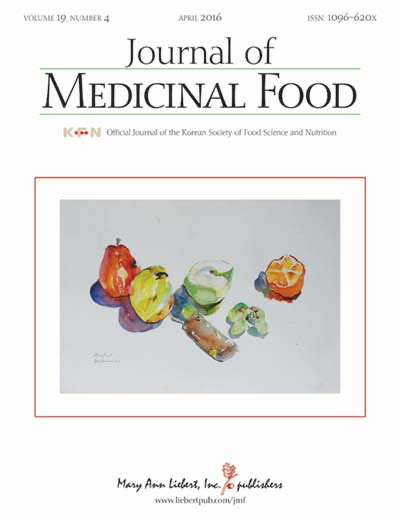
A 4-Week Pecan-Enriched Diet Improves Postprandial Lipid Peroxidation in Aging Adults
2023 Sep 01 Journal of Medicinal Food Cogan B, Pearson RC, Jenkins NT, Paton CM, Cooper JA
Randomised Controlled Trial Oxidative Stress Pecan Postprandial Oxidative StressDaily consumption of pecans for a month can help protect against post-meal oxidative stress in aging adults.

The еffects of low mineral content water on microbiota, metabolic, and oxidative stress parameters in patients with type 2 diabetes mellitus
2023 Aug Heliyon Jovicic N, Andjic M, Novakovic J, Jeremic N, Zivkovic V, Srejovic I, et al.
Cohort Study Intestinal Peristalsis Gut MicrobiotaConsuming “Sneznik-1/79” mineral water significantly improves intestinal health and reduces cholesterol in type 2 diabetes patients.
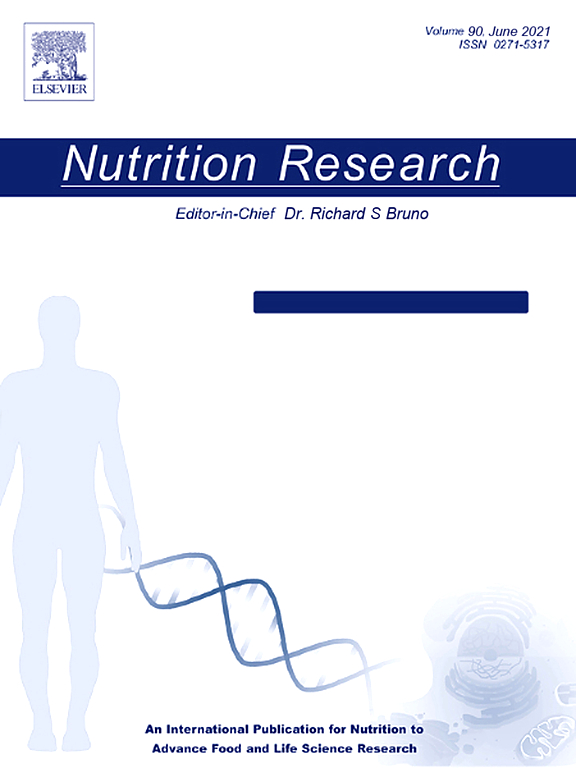
Pecan-enriched diet improves cholesterol profiles and enhances postprandial microvascular reactivity in older adults
2023 Mar Nutrition Research Cogan B, Pearson RC, Paton CM, Jenkins NT, Cooper JA
Daily consumption of 68 g of pecans for 4 weeks resulted in greater reductions in fasting total cholesterol, low-density lipoprotein (LDL) cholesterol, non-high-density lipoprotein cholesterol, LDL particle number, and LDL medium compared to a nut-free diet. Postprandial triglyceride levels were suppressed with pecan consumption, and improvements in microvascular reactivity were observed. Fasting macro- and microvascular function remained unaffected. The findings suggest that pecan consumption may contribute to improved vascular health and reduced cardiovascular risk in older adults.
Clinical Study Randomised Controlled Trial Cholesterol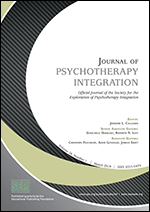
Integrating the manual stimulation of acupuncture points into psychotherapy: A systematic review with clinical recommendations.
2023 Mar Journal of Psychotherapy Integration Feinstein D
The article concludes that although further research is needed, the growing evidence base documenting the effectiveness, speed, and durability of the approach appears promising.
Systematic Review Acupuncture Psychotherapy
Effects of acupuncture on age-related macular degeneration: A systematic review and meta-analysis of randomized controlled trials
2023 Mar 23 PLOS One Sun W, Zhao Y, Liao L, Wang X, Wei Q, Chao G, et al.
Meta-Analysis Systematic Review Age-Related Macular Degeneration AcupunctureAcupuncture, either alone or as an adjunct, improved the clinical efficacy and visual acuity of age-related macular degeneration patients, particularly those with dry AMD.
Research insights are moderated by the Research Hub team and offer an at-a-glance overview of interesting research findings.

2023 Journal of Medicinal Food
Daily consumption of pecans for a month can help protect against post-meal oxidative stress in aging adults.
Randomised Controlled Trial Oxidative Stress Pecan Postprandial Oxidative Stress
A 4-Week Pecan-Enriched Diet Improves Postprandial Lipid Peroxidation in Aging Adults
Cogan B, Pearson RC, Jenkins NT, Paton CM, Cooper JA

2023 Heliyon
Consuming “Sneznik-1/79” mineral water significantly improves intestinal health and reduces cholesterol in type 2 diabetes patients.
Cohort Study Gut Microbiota Intestinal Peristalsis
The еffects of low mineral content water on microbiota, metabolic, and oxidative stress parameters in patients with type 2 diabetes mellitus
Jovicic N, Andjic M, Novakovic J, Jeremic N, Zivkovic V, Srejovic I, et al.

2023 PLOS One
Acupuncture, either alone or as an adjunct, improved the clinical efficacy and visual acuity of age-related macular degeneration patients, particularly those with dry AMD.
Meta-Analysis Acupuncture Age-Related Macular Degeneration
Effects of acupuncture on age-related macular degeneration: A systematic review and meta-analysis of randomized controlled trials
Sun W, Zhao Y, Liao L, Wang X, Wei Q, Chao G, et al.

2023 Journal of Medicinal Food
Korean pear extracts appear to alleviate air pollution-related respiratory hypersensitivity by modulating beneficial gut microflora and suppressing pro-inflammatory cytokines.
Randomised Controlled Trial Air Pollution Asthma Gut Microbiota
Effects of Pear Extracts on Microbiome and Immunocytokines to Alleviate Air Pollution-Related Respiratory Hypersensitivity
Yang M, Lee U, Cho HR, Lee KB, Shin YJ, Bae MJ, et al.

2022 Critical Reviews in Food Science and Nutrition
Vitamin D supplementation, particularly in doses greater than 2,000 IU/day, can help reduce depressive symptoms in adults.
Systematic Review Depression
The effect of vitamin D supplementation on depressive symptoms in adults: A systematic review and meta‐analysis of randomized controlled trials
Mikola T, Marx W, Lane MM, Hockey M, Loughman A, Rajapolvi S, et al.
Review Articles
Review articles summarise and critically evaluate the current state of research on a specific topic or field by synthesising multiple primary research studies.

Integrating the manual stimulation of acupuncture points into psychotherapy: A systematic review with clinical recommendations.
2023 Mar Journal of Psychotherapy Integration Feinstein D
The article concludes that although further research is needed, the growing evidence base documenting the effectiveness, speed, and durability of the approach appears promising.
Systematic Review Acupuncture Psychotherapy
Effects of acupuncture on age-related macular degeneration: A systematic review and meta-analysis of randomized controlled trials
2023 Mar 23 PLOS One Sun W, Zhao Y, Liao L, Wang X, Wei Q, Chao G, et al.
Meta-Analysis Systematic Review Age-Related Macular Degeneration AcupunctureAcupuncture, either alone or as an adjunct, improved the clinical efficacy and visual acuity of age-related macular degeneration patients, particularly those with dry AMD.

Acupuncture for Female Infertility: Discussion on Action Mechanism and Application
2022 Jul 04 Evidence-Based Complementary and Alternative Medicine Xu J, Zhao A, Xin P, Geng J, Wang B, Xia T
Acupuncture and related therapy can restore the average balance and regularity of sex hormones in infertile women by decreasing serum FSH and LH levels and increasing E2 and P levels, which are beneficial for follicle development and maturation, regular ovulation, and the normal physiological function of the inner membrane, which is conducive to conception. As a complementary and alternative therapy, acupuncture can play a positive role in PCOS-infertility, POI- infertility, and IVF-ET, with clinical application value.
Review Article Acupuncture Female Fertility
The effect of vitamin D supplementation on depressive symptoms in adults: A systematic review and meta‐analysis of randomized controlled trials
2022 Jul 11 Critical Reviews in Food Science and Nutrition Mikola T, Marx W, Lane MM, Hockey M, Loughman A, Rajapolvi S, et al.
Systematic Review Meta-Analysis DepressionVitamin D supplementation, particularly in doses greater than 2,000 IU/day, can help reduce depressive symptoms in adults.
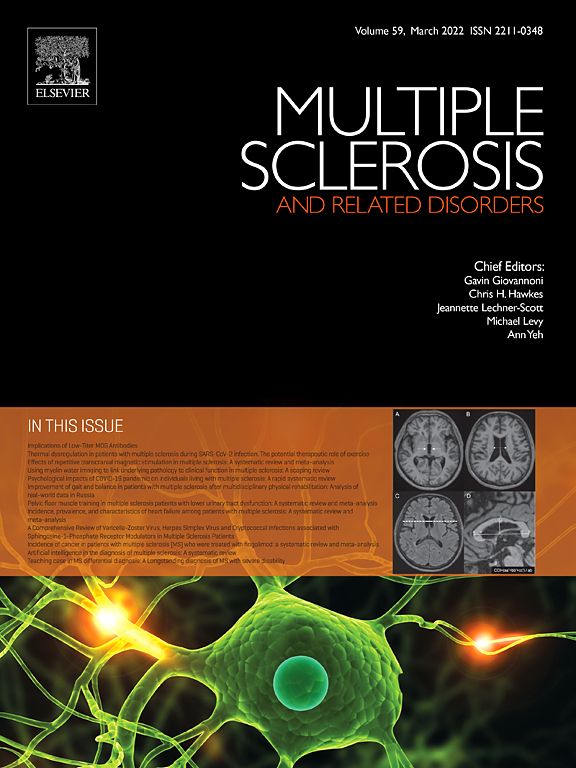
Acupuncture for multiple sclerosis: A literature review
2022 Apr 26 Multiple Sclerosis and Related Disorders Khodaie F, Abbasi N, Kazemi Motlagh AH, Zhao B, Naser Moghadasi A
Review Article Multiple SclerosisAcupuncture, when used as an integrative therapy in conjunction with traditional treatments, significantly improves the quality of life in patients with Multiple Sclerosis.
Clinical Trials
Clinical trials are research studies that involve people and are conducted to evaluate the safety and efficacy of new treatments or interventions, such as drugs, medical devices, or behavioural therapies.

A 4-Week Pecan-Enriched Diet Improves Postprandial Lipid Peroxidation in Aging Adults
2023 Sep 01 Journal of Medicinal Food Cogan B, Pearson RC, Jenkins NT, Paton CM, Cooper JA
Randomised Controlled Trial Oxidative Stress Pecan Postprandial Oxidative StressDaily consumption of pecans for a month can help protect against post-meal oxidative stress in aging adults.

Pecan-enriched diet improves cholesterol profiles and enhances postprandial microvascular reactivity in older adults
2023 Mar Nutrition Research Cogan B, Pearson RC, Paton CM, Jenkins NT, Cooper JA
Daily consumption of 68 g of pecans for 4 weeks resulted in greater reductions in fasting total cholesterol, low-density lipoprotein (LDL) cholesterol, non-high-density lipoprotein cholesterol, LDL particle number, and LDL medium compared to a nut-free diet. Postprandial triglyceride levels were suppressed with pecan consumption, and improvements in microvascular reactivity were observed. Fasting macro- and microvascular function remained unaffected. The findings suggest that pecan consumption may contribute to improved vascular health and reduced cardiovascular risk in older adults.
Clinical Study Randomised Controlled Trial Cholesterol
Effects of Pear Extracts on Microbiome and Immunocytokines to Alleviate Air Pollution-Related Respiratory Hypersensitivity
2023 Mar 01 Journal of Medicinal Food Yang M, Lee U, Cho HR, Lee KB, Shin YJ, Bae MJ, et al.
Randomised Controlled Trial Air Pollution Asthma Gut Microbiota PearKorean pear extracts appear to alleviate air pollution-related respiratory hypersensitivity by modulating beneficial gut microflora and suppressing pro-inflammatory cytokines.

Effectiveness of acupuncture for fatigue in patients with relapsing-remitting multiple sclerosis: a randomized controlled trial
2023 Feb 01 Acupuncture in Medicine Khodaie F, Naser Moghadasi A, Kazemi AH, Zhao B
Acupuncture combined with amantadine and routine care, compared with amantadine and routine care alone, appears to be an effective short-term treatment for reducing fatigue and enhancing quality of life, including physical function and mental status, in patients with RRMS.
Randomised Controlled Trial Multiple Sclerosis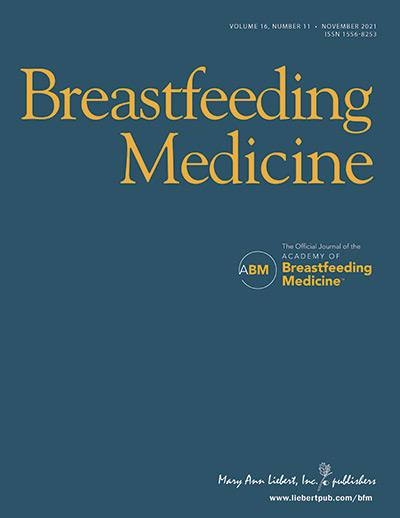
The Effects of Date Fruit Consumption on Breast Milk Quantity and Nutritional Status of Infants
2021 Nov 01 Breastfeeding Medicine Modepeng T, Pavadhgul P, Bumrungpert A, Kitipichai W
Randomised Controlled Trial Breastfeeding Date Fruit GalactagoguesDate fruit consumption appears to be useful for promoting and increasing breast milk quantity in breastfeeding mothers. Date fruits may be an alternative galactagogue.
Study Protocols
Published study protocols are detailed plans that outline the objectives, methodology, statistical analyses, and organisation of a research study that have been made publicly available for others to review and use as a reference.
Presentation Slides

Randomised Controlled Trial
Daily consumption of pecans for a month can help protect against post-meal oxidative stress in aging adults.
Cogan B, Pearson RC, Jenkins NT, Paton CM, Cooper JA

Cohort Study
Consuming “Sneznik-1/79” mineral water significantly improves intestinal health and reduces cholesterol in type 2 diabetes patients.
Jovicic N, Andjic M, Novakovic J, Jeremic N, Zivkovic V, Srejovic I, Stanojevic D, Ristic P, Bolevich S, Jakovljevic V

Meta-Analysis
Acupuncture, either alone or as an adjunct, improved the clinical efficacy and visual acuity of age-related macular degeneration patients, particularly those with dry AMD.
Sun W, Zhao Y, Liao L, Wang X, Wei Q, Chao G, Zhou J

Randomised Controlled Trial
Korean pear extracts appear to alleviate air pollution-related respiratory hypersensitivity by modulating beneficial gut microflora and suppressing pro-inflammatory cytokines.
Yang M, Lee U, Cho HR, Lee KB, Shin YJ, Bae MJ, Park KY

Systematic Review
Vitamin D supplementation, particularly in doses greater than 2,000 IU/day, can help reduce depressive symptoms in adults.
Mikola T, Marx W, Lane MM, Hockey M, Loughman A, Rajapolvi S, Rocks T, O’Neil A, Mischoulon D, Valkonen-Korhonen M, Lehto SM, Ruusunen A

Review Article
Acupuncture, when used as an integrative therapy in conjunction with traditional treatments, significantly improves the quality of life in patients with Multiple Sclerosis.
Khodaie F, Abbasi N, Kazemi Motlagh AH, Zhao B, Naser Moghadasi A

Meta-Analysis
Probiotics combined with traditional Chinese medicine have shown higher rates of efficiency in the treatment of ulcerative colitis than when each is used individually.
Hu Y, Ye Z, She Y, Li L, Wu M, Qin K, Li Y, He H, Hu Z, Yang M, Lu F, Ye Q

Systematic Review
Acupuncture's potential in reducing menopausal hot flush frequency compared to sham acupuncture, and its similarity in impacting hormone levels to hormone therapy.
Liu C, Wang Z, Guo T, Zhuang L, Gao X

Randomised Controlled Trial
Date fruit consumption appears to be useful for promoting and increasing breast milk quantity in breastfeeding mothers. Date fruits may be an alternative galactagogue.
Modepeng T, Pavadhgul P, Bumrungpert A, Kitipichai W

Systematic Review
Caffeine consumption does not seem to be associated with an increased risk of endometriosis overall, higher caffeine intake may be linked to an elevated risk, and more research is required to understand this potential dose-dependent relationship and account for unidentified biases.
Kechagias KS, Katsikas Triantafyllidis K, Kyriakidou M, Giannos P, Kalliala I, Veroniki AA, Paraskevaidi M, Kyrgiou M
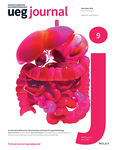
Randomised Controlled Trial
Small-intestinal release peppermint oil is a cost-effective treatment for Irritable Bowel Syndrome, yielding modest quality of life gains and relieving abdominal pain.
Weerts ZZRM, Essers BAB, Jonkers DMAE, Willems JIA, Janssen DJPA, Witteman BJM, Clemens CHM, Westendorp A, Masclee AAM, Keszthelyi D
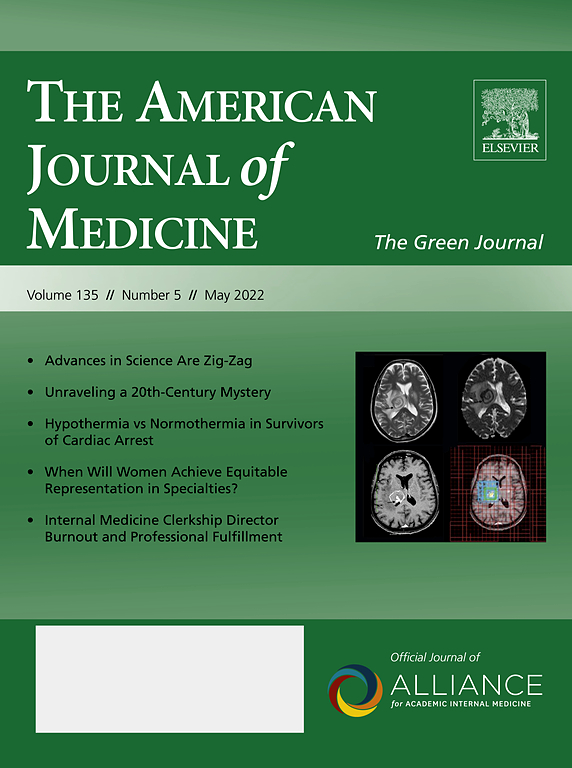
Systematic Review
Coffee consumption, particularly boiled coffee, may increase levels of certain cardiovascular risk markers, but no strong link was found to anti-inflammatory effects.
Daneschvar HL, Smetana GW, Brindamour L, Bain PA, Mukamal KJ
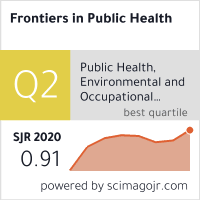
Systematic Review
Based on the current evidence, acupuncture appears to be beneficial to increase the clinical pregnancy rate in women undergoing in vitro fertilization and embryo transfer.
Wang X, Wang Y, Wei S, He B, Cao Y, Zhang N, Li M
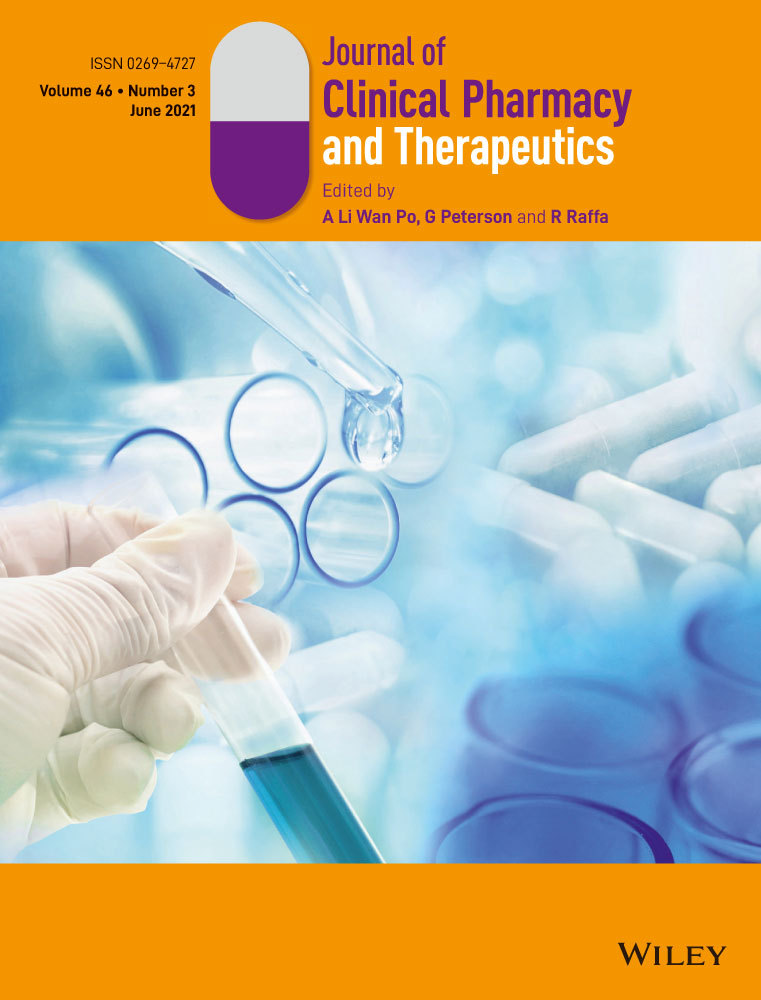
Systematic Review
Acupuncture appears to have an effect on diabetic peripheral neuropathy, effectively improving nerve conduction and clinical symptoms.
Yu B, Li M, Huang H, Ma S, Huang K, Zhong Z, Yu S, Zhang L.
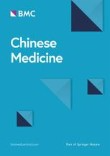
Systematic Review
Traditional Chinese medicines might have various beneficial effects for non-alcoholic fatty liver disease such as improving TCM syndrome score, liver function, and body lipid profile.
Liang Z, Chen X, Shi J, Hu H, Xue Y, Ung COL

Systematic Review
Chinese herbal medicine seems to be as effective as flunarizine in reducing the frequency of migraines in adults.
Lyu S, Zhang CS, Guo X, Zhang AL, Sun J, Lu C, Xue CC, Luo X

Treatments according to traditional Chinese medicine syndrome differentiation can provide patients with individualized treatments for chronic fatigue syndrome.
Zhang X, Wang M, Zhou S

Randomised Controlled Trial
Electroacupuncture and manual acupuncture show similar effectiveness in relieving plantar heel pain syndrome with no significant difference between the two modalities.
Wang W, Liu Y, Jiao R, Liu S, Zhao J, Liu Z
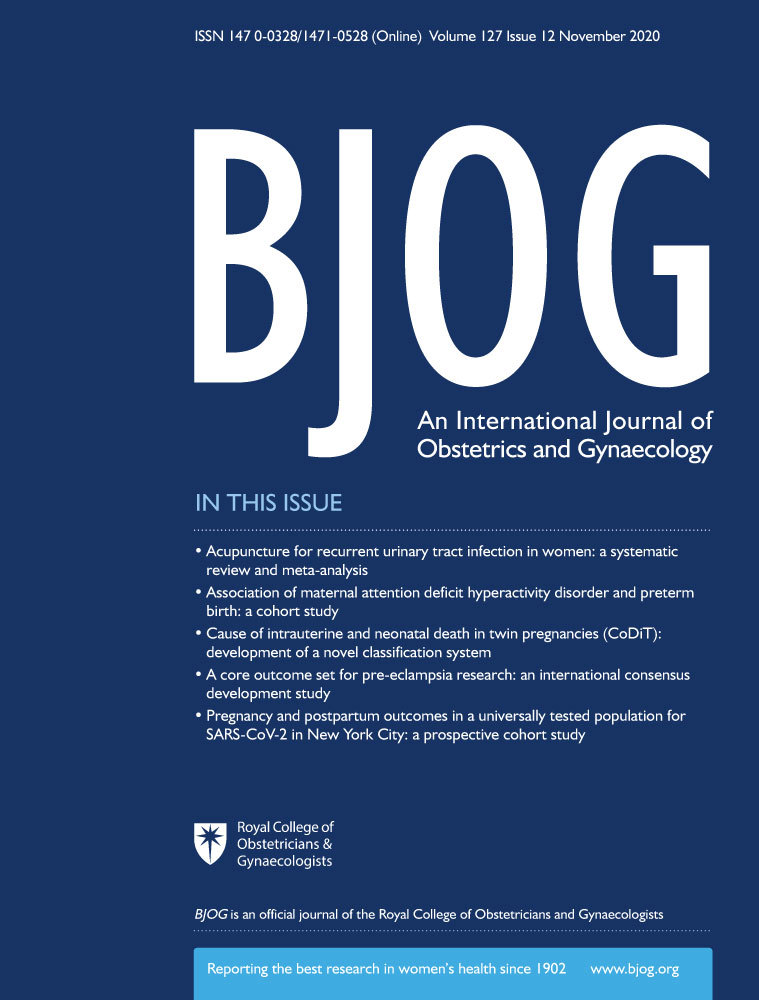
Systematic Review
Acupuncture appeared to be beneficial for treatment and prophylaxis of recurrent urinary tract infections.
Qin X, Coyle ME, Yang L, Liang J, Wang K, Guo X, Zhang AL, Mao W, Lu C, Xue CC, Liu X

Randomised Controlled Trial
Electroacupuncture might provide stronger impact on knee osteoarthritis than manual acupuncture, though both methods are safe and feasible treatments.
Wang TQ, Li YT, Wang LQ, Shi GX, Tu JF, Yang JW, Hou YQ, Lin LL, Sun N, Zhao JJ, Hou HK, Liu CZ
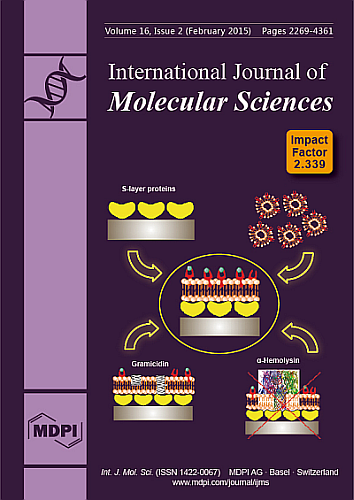
Coix seed extract could augment the efficacy of gemcitabine therapy in pancreatic cancer cells at least partly due to the alteration of ABC transporter-mediated drug efflux function.
Qian, Y.; Xiong, Y.; Feng, D.; Wu, Y.; Zhang, X.; Chen, L.; Gu, M.
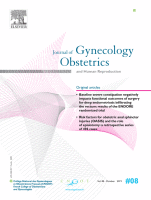
Systematic Review
Acupuncture appears to be beneficial to women with poor ovarian reserve or with previous unsuccessful attempts of in vitro fertilization with embryo transfer.
Gu, Y.-E., Zhang, X., Zhang, Q., Dai, M.-C., Wu, Y., Zhou, Y., & Qu, F.
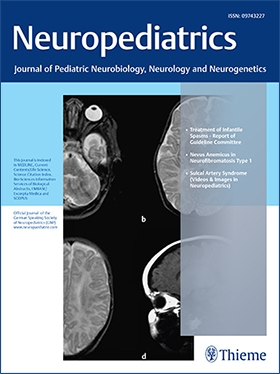
Review Article
Currently, acupuncture is considered to be a safe, helpful, and available alternative option for patients who have not responded to or complied with conventional pharmacotherapy.
Doll, E., Threlkeld, B., Graff, D., Clemons, R., Mittel, O., Sowell, M. K.

Systematic Review
Acupuncture, regardless of the trial design, showed a positive effect on pain-related outcome measures for participants with diabetic peripheral neuropathy.
Nash J, Armour M, Penkala S

Network Pharmacology
Raw pu-erh tea extract has superior antioxidant capacity due to higher polyphenol content, but ripe pu-erh offers a cheaper, yet effective alternative for antioxidant or antimicrobial properties.
Roda G, Marinello C, Grassi A, et al.

Systematic Review
Andrographis Paniculata (Chuan Xin Lian) appears beneficial and safe for relieving acute respiratory tract infection symptoms and shortening time to symptom resolution.
Hu XY, Wu RH, Logue M, Blondel C, Lai LYW, et al.

Systematic Review
Acupuncture appears to be effective for postpartum depression with respect to certain outcomes.
Li S, Zhong W, Peng W, Jiang G
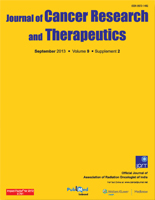
Systematic Review
The use of acupuncture as an adjunct to ameliorate hot flashes is still a relatively sound treatment for breast cancer patients.
Wang XP, Zhang DJ, Wei XD, Wang JP, Zhang DZ.

Randomised Controlled Trial
Acupuncture appeared to significantly reduce the number of days of antihistamine use while improving rhinitis-specific quality of life and seasonal allergic rhinitis symptoms
Adam D, Grabenhenrich L, Ortiz M, Binting S, Reinhold T, Brinkhaus B
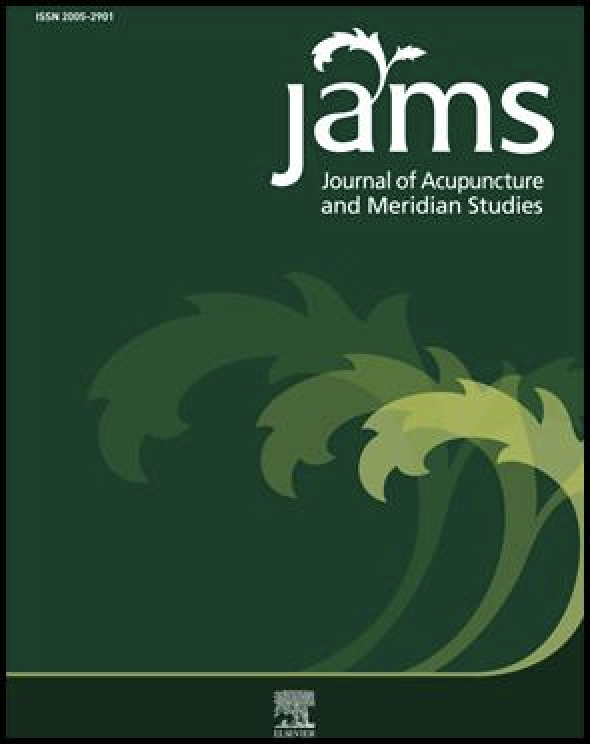
Review Article
Acupuncture effectively manages a range of post-spinal cord injury complications, including motor and sensory dysfunction, pain, neurogenic bowel and bladder, pressure ulcers, spasticity, and osteoporosis.
Qianqian, F., Omer, C., Lize, X., & Yun, X.
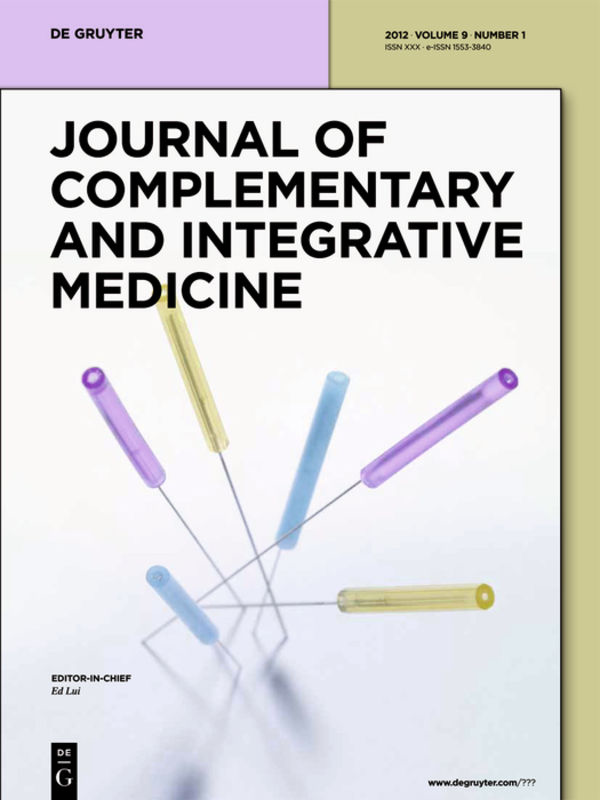
Systematic Review
Fennel caused a significant increase in mean menstrual bleeding in the first cycle after treatment in the intervention group compared to the control.
Nafiseh Ghassab Abdollahi, Mojgan Mirghafourvand and Sanaz Mollazadeh

Meta-Analysis
The herbal formula Modified Bu Zhong Yi Qi Tang significantly improves functional constipation symptoms with fewer adverse events.
Gong H, Qin F, He H
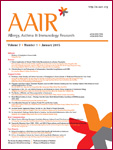
Systematic Review
Chinese herbal medicine tends to improve the quality of life of patients suffering from allergic rhinitis.
Zhang X, Lan F, Zhang Y, Zhang L

Systematic Review
Acupuncture may be effective at relieving chronic knee pain 12 weeks after acupuncture administration.
Zhang Q, Yue J, Golianu B, Sun Z, Lu Y.

Randomised Controlled Trial
The extract from Hovenia Dulcis fruit (HDE) appears to decrease hangover symptoms effectively by regulating the body's inflammatory response to alcohol.
Kim H, Kim YJ, Jeong HY, Kim JY, Choi EK, Chae SW, Kwon O
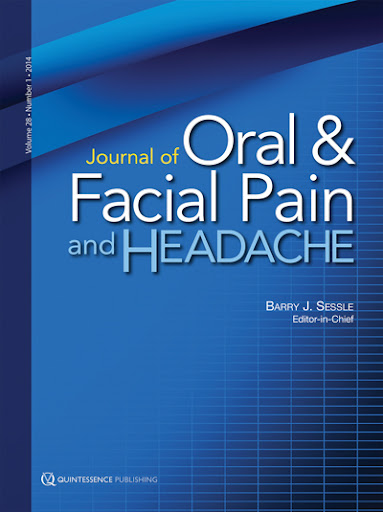
Systematic Review
Acupuncture yielded results similar to those observed in groups treated with occlusal splints for pain in myofascial temporomandibular disorder.
Ana Carla Bezerra De Carvalho Justo Fernandes, DDS, MSc/Dayanne Monielle Duarte Moura, DDS, MSc/Laura Géssica Dantas Da Silva, DDS, MSc/Erika Oliveira De Almeida, DDS, MSc, PhD/Gustavo Augusto Seabra Barbosa, DDS, MSc, PhD

Systematic Review
Acupuncture was more effective than conventional medicine therapy in effectiveness, improvement rate of vertigo and headache, and increased average blood flow velocity of vertebral-basilar artery.
Zhuanzhuan Hou, Shibing Xu, Qinglin Li, Libing Cai, Weigang Wu, Huida Yu, Huade Chen

Randomised Controlled Trial
Kiwifruit consumption before bedtime significantly improves sleep quality and daytime function in individuals with chronic insomnia in comparison to pear consumption.
Nødtvedt O, Hansen AL, Bjorvatn B, Pallesen S
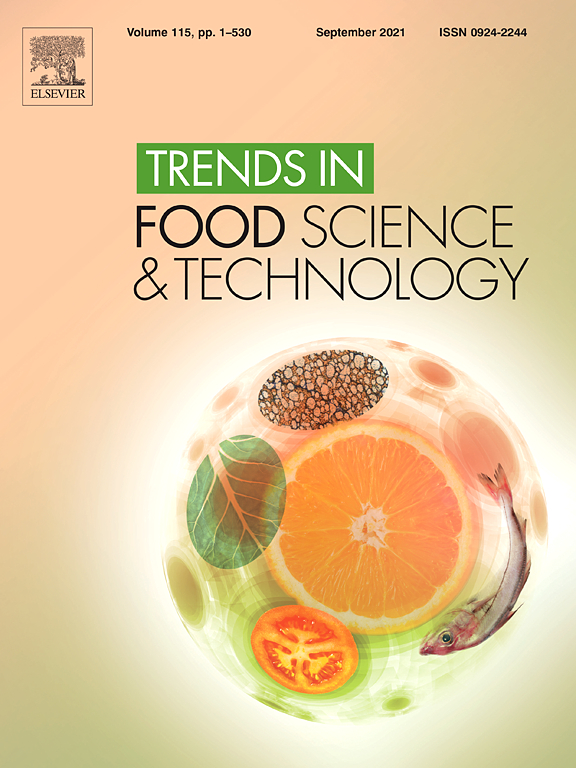
Review Article
The claimed health benefits of coix include anti-oxidation, anti-cancer, anti-inflammation, anti-allergy, enhancing immunological activity, regulating endocrine functions, anti-obesity, anti-diabetes, gastroprotection, hypolipidemia, and modulating gut microbiota.
Fan Zhu

Systematic Review
SP6 acupressure's effectiveness for primary dysmenorrhea relief, indicating trained personnel-administered acupressure reduced pain immediately and up to 3 hours post-intervention
Abaraogu UO, Igwe SE, Tabansi-Ochiogu CS
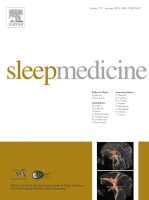
Systematic Review
Chinese herbal medicine was superior to placebo and benzodiazepine drugs and was superior to benzodiazepines and psychotherapy alone as an adjunct therapy in terms of subjective sleep quality and quantity and safety.
Xiaojia Ni, Johannah Linda Shergis, Xinfeng Guo, Anthony Lin Zhang, Yan Li, Chuanjian Lu, Charlie Changli Xue
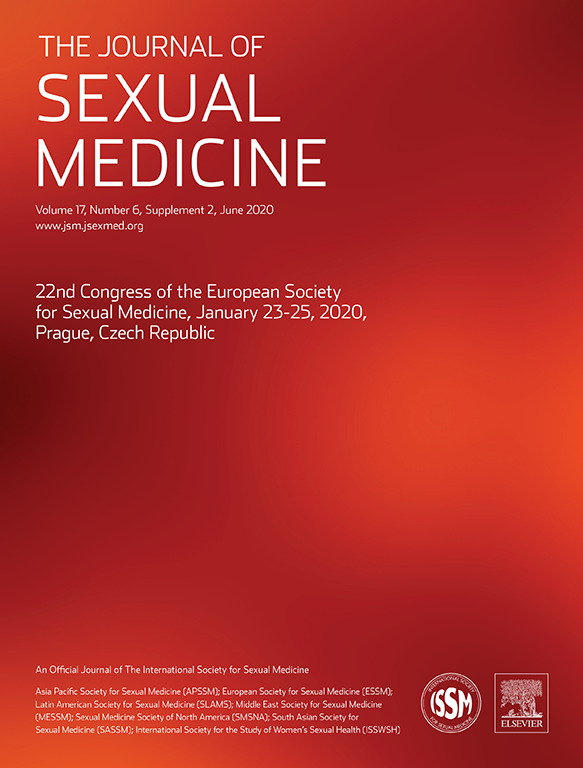
Randomised Controlled Trial
Acupuncture appeared to reduce vulvar pain and dyspareunia with an increase in overall sexual function for women with vulvodynia.
Schlaeger JM, Xu N, Mejta CL, Park CG, Wilkie DJ
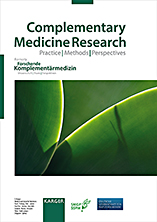
Systematic Review
Acupuncture therapies demonstrate some potential benefits in treating psoriasis vulgaris, despite conflictions in individual study results.
Coyle M, Deng J, Zhang AL, Yu J, Guo X, Xue CC, Lu C
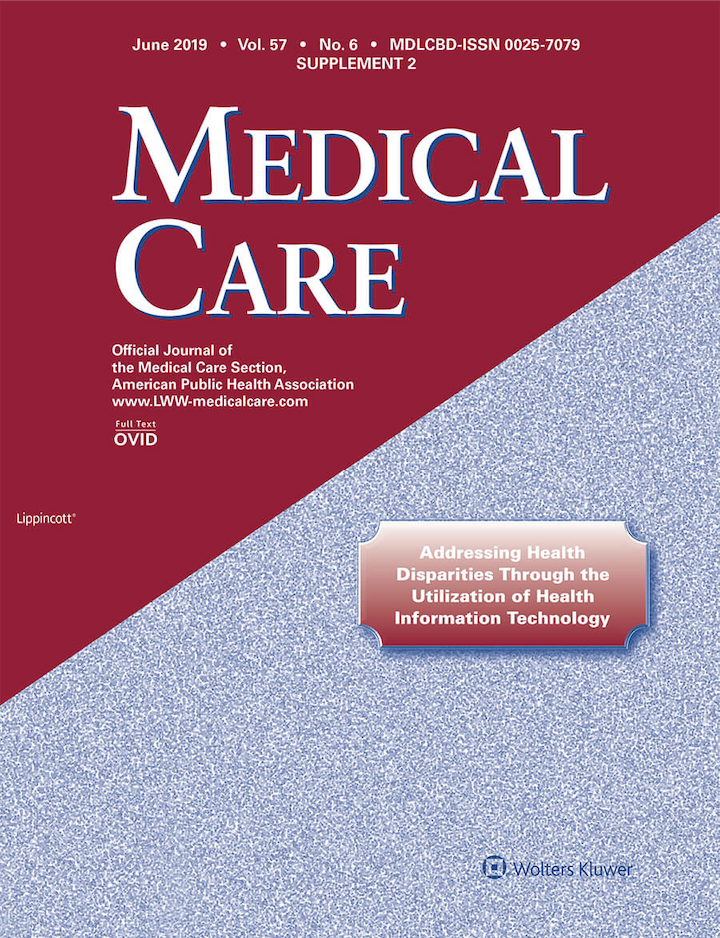
Randomised Controlled Trial
Improvement in post traumatic stress disorder severity was significantly greater among those receiving acupuncture than in those receiving usual PTSD care.
Engel CC, Cordova EH, Benedek DM, Liu X, Gore KL, Goertz C, et al.

Systematic Review
Acupuncture during pregnancy appears to be associated with few adverse events when correctly applied.
Park J, Sohn Y, White AR, Lee H.

Systematic Review
Guizhi Fuling formula shows potential in treating uterine fibroids.
Chen NN, Han M, Yang H, Yang GY, Wang YY, Wu XK, Liu JP
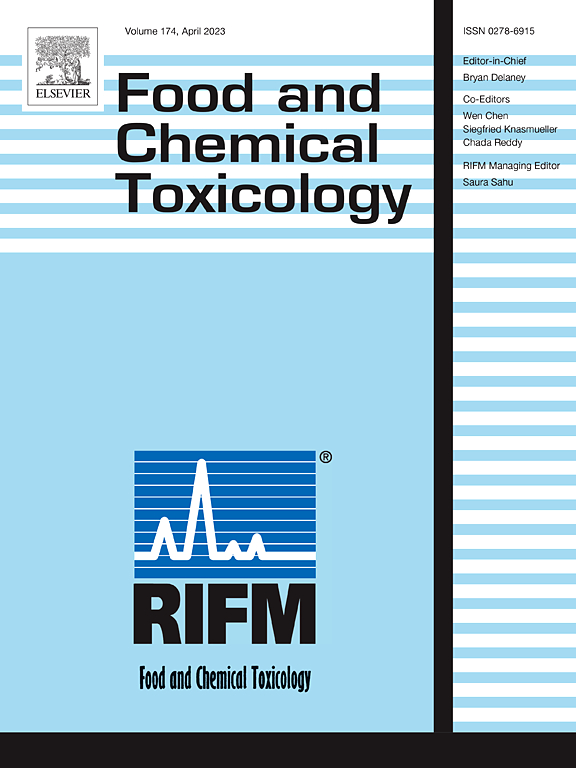
Randomised Controlled Trial
Korean pear juice can alleviate symptoms of alcohol hangover and aid in alcohol detoxification, with effectiveness influenced by certain genetic variations.
Lee HS, Isse T, Kawamoto T, Baik HW, Park JY, Yang M
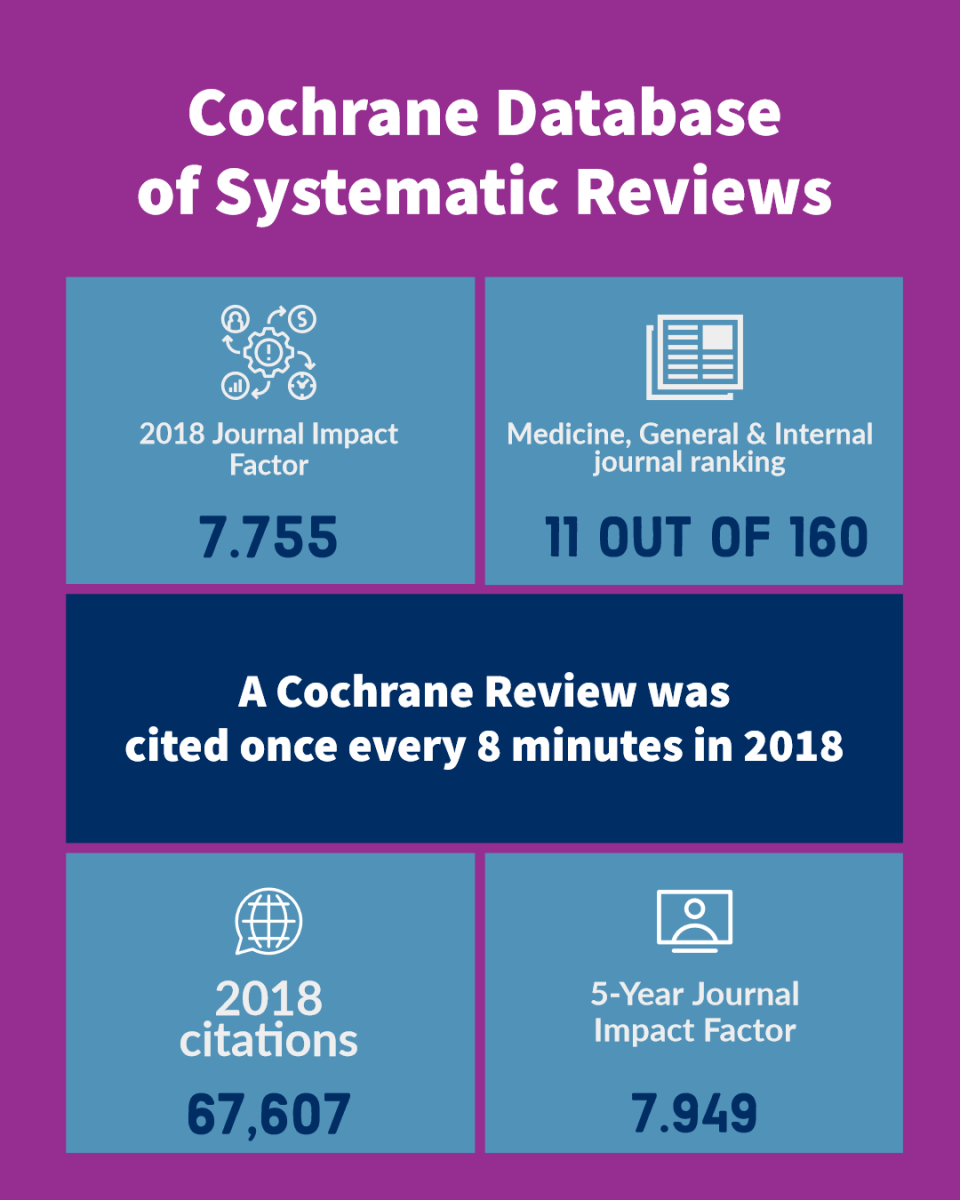
Systematic Review
When acupuncture was compared with no treatment, there appeared to be a benefit from acupuncture, but acupuncture appeared to be less effective than hormone therapy.
Dodin S, Blanchet C, Marc I, Ernst E, Wu T, Vaillancourt C, et al.
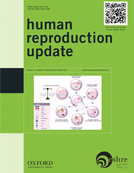
Systematic Review
The meta-analysis indicates that while adjuvant acupuncture does not show a pooled benefit for in vitro fertilization (IVF) across all trials, it appears to have a more significant effect in trials with lower baseline pregnancy rates, warranting further investigation and confirmation in additional studies.
Manheimer, E. ., van der Windt, D., Cheng, K., Stafford, K., Liu, J. ., Tierney, J., Lao, L. ., Berman, B. ., Langenberg, P., & Bouter, L.
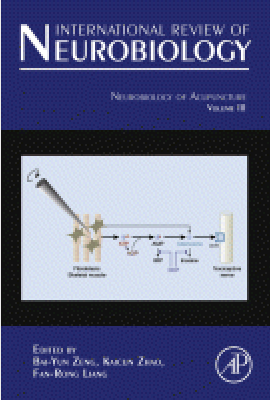
Systematic Review
The clinical efficacy of acupuncture appeared to be supported by evidence obtained from basic neuroendocrinological studies.
Kaicun Zhao
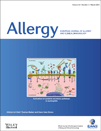
Randomised Controlled Trial
Acupuncture was found to be a more effective and safe treatment for allergic rhinitis than sham acupuncture or no treatment.
Choi SM, Park JE, Li SS, Jung H, Zi M, Kim TH, Jung S, Kim A, Shin M, Sul JU, Hong Z, Jiping Z, Lee S, Liyun H, Kang K, Baoyan L

Review Article
Chinese herbal medicine as an adjunct therapy can potentially alleviate symptoms of Parkinson's Disease and is typically well-tolerated by patients.
Wang Y, Xie CL, Lu L, Fu DL, Zheng GQ
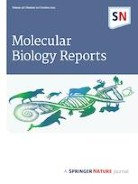
Systematic Review
Traditional Chinese medicines had a better effect on the normalization of alanine aminotransferase and disappearance of radiological steatosis in the treatment of non-alcoholic fatty liver disease.
Shi KQ, Fan YC, Liu WY, Li LF, Chen YP, Zheng MH

Experimental Study
Korean pears potentially boost key alcohol-metabolizing enzymes, aiding alcohol detoxification, with effects that may vary due to human ALDH2 polymorphisms.
Lee HS, Isse T, Kawamoto T, Woo HS, Kim AK, Park JY, Yang M
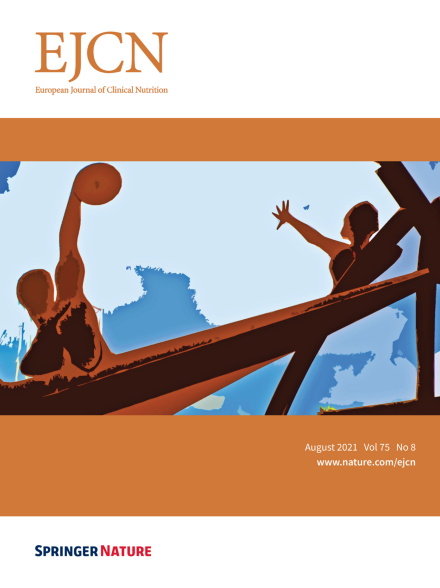
Meta-Analysis
Consumption of dark chocolate and cocoa products has been shown to significantly reduce serum levels of low-density lipoprotein (LDL) and total cholesterol (TC), indicating potential cardiovascular benefits.
Tokede OA, Gaziano JM, Djoussé L
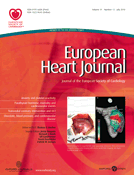
Cohort Study
Chocolate consumption appears to lower cardiovascular disease risk, in part through reducing blood pressure.
Buijsse B, Weikert C, Drogan D, Bergmann M, Boeing H
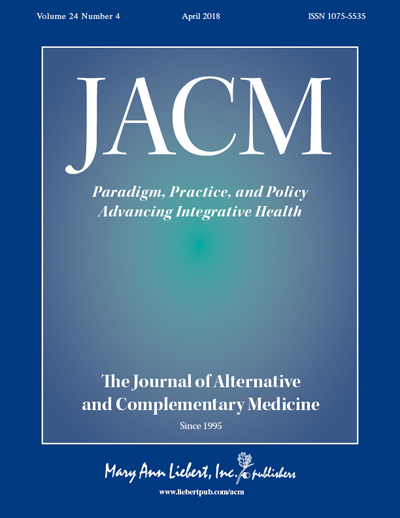
Systematic Review
Clinical studies have shown that acupuncture may have a beneficial effect on insomnia compared with Western medication.
Cao H, Pan X, Li H, Liu J.
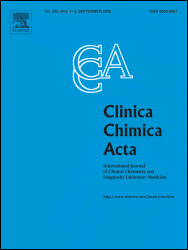
Clinical Study
Migraine patients exhibit lower intracellular magnesium levels, which can be increased by consuming magnesium-rich mineral water, demonstrating its bioavailability.
Thomas J, Millot JM, Sebille S, Delabroise AM, Thomas E, Manfait M, Arnaud MJ
Executive Summary
Write an executive summary in the form of a blog article on the topic of "Research into Chinese medicine treatment for Pear" summarising the research below and using language that can be easily understood by patients and avoiding medical jargon using a professional and caring tone of voice.
Write an executive summary in the form of a blog article on the topic of "Researched Chinese medicine treatments for Pear" summarising the research below in an objective and easy to understand way, and using language that can be easily understood by patients. Group the article into Chinese medicine treatments first, followed by nutrition and other treatments. Avoid using medical jargon and use a professional and caring tone of voice.
Write me a concise but easy to understand executive summary on the topic of "Chinese medicine treatments for Pear" based on the following research that I will give you. Your summary should be 2 paragraphs long in Australian English spelling and include references to the studies.
A Randomised Controlled Trial published in 2023 in the journal Journal of Medicinal Food found that Daily consumption of pecans for a month can help protect against post-meal oxidative stress in aging adults. The abstract outlines a randomized, parallel, controlled trial where 41 healthy adults aged between 50 and 75 were split into two groups. One group consumed 68 grams of pecans every day for four weeks, while the other group avoided all nuts. Blood samples were obtained from all participants before and after the intervention during fasting and at intervals of 30, 60, and 120 minutes after a meal high in saturated fats. Changes were observed in various parameters, including malondialdehyde - a marker for lipid peroxidation, total antioxidant capacity (TAC), glucose, and insulin levels. The study revealed no significant variances in fasting or post-meal TAC, glucose, or insulin for the pecan consumers compared to the control group. However, there was a noticeable tendency towards a change in fasting lipid peroxidation driven by a minor reduction for the pecan group compared to the control group. Moreover, post-meal lipid peroxidation was suppressed in the pecan group, distinctly different from the control group's results. These outcomes propose that a diet enriched in pecans for one month can provide protection against post-meal oxidative stress in older adults.
A Cohort Study published in 2023 in the journal Heliyon found that Consuming “Sneznik-1/79” mineral water significantly improves intestinal health and reduces cholesterol in type 2 diabetes patients. The study involved 60 patients with confirmed Type 2 Diabetes, who drank “Sneznik-1/79” mineral water from Serbia daily for 28 days. Researchers conducted standard biochemical tests, including glucose level, lipid profile, and stool analysis. Additionally, blood samples were taken to assess the impact of the water on oxidative stress markers. Post consumption of “Sneznik-1/79” water, a substantial decrease in total cholesterol levels was noted. Notably, all patients experienced regular daily bowel movements, indicating improved intestinal peristalsis. Half of the participants showed elimination of dysbiosis. Furthermore, there was an increase in antioxidants like superoxide dismutase and reduced glutathione, suggesting enhanced antioxidant capacity. The study highlights “Sneznik-1/79” water as a potential complementary treatment for improving gut health and reducing cholesterol in Type 2 Diabetes patients.
A Meta-Analysis published in 2023 in the journal PLOS One found that Acupuncture, either alone or as an adjunct, improved the clinical efficacy and visual acuity of age-related macular degeneration patients, particularly those with dry AMD. The study conducted a meta-analysis on nine out of 226 articles selected from various databases such as PubMed, Ovid Medline, Embase, Cochrane Library, The Chinese National Knowledge Infrastructure Database, VIP, Wanfang, and SINOMED up until September 4, 2022. Two separate reviewers independently carried out the literature screening and data extraction and used RevMan 5.4 software for the meta-analysis. In the discussion of the results, it was found that 508 AMD patients (representing a total of 631 eyes), including 360 dry eyes and 271 wet eyes, showed improvement in both clinical efficacy and best-corrected visual acuity after receiving acupuncture treatment. The treatment also led to a reduction in their central macular thickness. However, while the benefits of acupuncture were seen, the quality of evidence supporting these outcomes was judged as ranging from "low" to "very low".
A Randomised Controlled Trial published in 2023 in the journal Journal of Medicinal Food found that Korean pear extracts appear to alleviate air pollution-related respiratory hypersensitivity by modulating beneficial gut microflora and suppressing pro-inflammatory cytokines. In the preclinical and randomized double-blind clinical studies, mild-asthma subjects living in Seoul, Korea were divided into two groups: one receiving a daily treatment of pear extracts for four weeks, and a placebo group. The pear extract was tested for its ability to mitigate respiratory hypersensitivity connected to air pollution. The treatment's effects were evaluated based on the toxicokinetic study of exposure biomarkers for airborne polyaromatic hydrocarbons and levels of pro-inflammatory cytokines in human subjects. In terms of results, it was found that those individuals receiving daily pear extract exhibited decreased levels of exposure biomarkers related to airborne polyaromatic hydrocarbons. Furthermore, the pear extract treatment was associated with a significant increase in populations of fiber-degrading bacteria that boost beneficial gut microflora crucial for immune defense. Additionally, the extracts significantly suppressed the production of various pro-inflammatory cytokines, as per the preclinical tests conducted on asthma-induced mice. Overall, these outcomes suggest a beneficial role of Korean pear extracts in mitigating air pollution-related respiratory hypersensitivity.
A Systematic Review published in 2022 in the journal Critical Reviews in Food Science and Nutrition found that Vitamin D supplementation, particularly in doses greater than 2,000 IU/day, can help reduce depressive symptoms in adults. In the methodology, a comprehensive database search (including Medline, PsycINFO, CINAHL and The Cochrane Library) was performed to identify English language articles relating to the impact of Vitamin D on depression in adults, published before April 2022. This meta-analysis considered both general and clinical populations and also included studies of individuals suffering from systemic diseases, but excluded studies involving light therapy, co-supplementation (except calcium), and bipolar disorder. During the assessment of the work, the Cochrane risk-of-bias tool (RoB 2) and GRADE standards were employed to appraise the validity of each study. The results revealed a positive effect of Vitamin D on alleviating depressive symptoms. Despite the presence of high heterogeneity within included studies and with the majority having concerns related to risk of bias, it was found overall that Vitamin D supplementation, particularly when administered at doses about 2,000 IU/day, could serve as a valuable solution in reducing depressive conditions. This offers an interesting angle for mental health treatment, suggesting the supplement could be a useful addition to standard therapeutic procedures for clinical depression.
A Review Article published in 2022 in the journal Multiple Sclerosis and Related Disorders found that Acupuncture, when used as an integrative therapy in conjunction with traditional treatments, significantly improves the quality of life in patients with Multiple Sclerosis. In the methodology of this study, the PUBMED database was meticulously searched in September 2021, for English articles or at least ones with English abstracts, surfacing every article published from the inception of the literature up until the latter part of 2021. The search terms included keywords such as 'acupuncture', 'electroacupuncture', and 'multiple sclerosis' in the titles and abstracts. Out of the 75 articles discovered, just a little over a third, precisely 31 articles, were incorporated into this study. The discovery from the methodology outlined was that acupuncture provides an array of benefits for Multiple Sclerosis patients. These benefits are primarily seen in the regulation of the neuro-immune system, enhancement of life quality, fatigue reduction, improved bladder functionality, diminished limb spasm and pain, deceleration of disease progression, and decreased relapses. Traditional Chinese acupuncture and scalp acupuncture were observed to be particularly helpful in alleviating Multiple Sclerosis symptoms such as fatigue, neural functional deficits, pain, gait abnormalities, and bladder dysfunction, alongside reducing relapse occurrences. This makes acupuncture a viable integrated therapy option for patients with Multiple Sclerosis.
A Meta-Analysis published in 2022 in the journal Frontiers in Pharmacology found that Probiotics combined with traditional Chinese medicine have shown higher rates of efficiency in the treatment of ulcerative colitis than when each is used individually. For the methodology, the researchers utilized a comprehensive search of multiple databases such as Pubmed, EMBASE, Cochrane library, China Academic Journals, Wan-fang database, Chinese biomedical literature service system, and Chinese Science and Technology Journals. They designed subgroup analysis in alignment with distinct control drugs, treatment lengths, and types of probiotics, using Review Manager software for statistical analysis. In discussing the results, the study analyzed fourteen original studies containing over a thousand patients. It concluded that the combination of probiotics with traditional Chinese medicine was more effective than 5-aminosalicylic acid, probiotics, or traditional Chinese medicine used individually. Further, this combination was found to suppress intestinal inflammation, diminish the frequency of recurrence, and lower the occurrence of adverse events. The results indicated that a mixture of different probiotics was more effective than a single strain.
A Systematic Review published in 2021 in the journal Acupuncture in Medicine found that Acupuncture's potential in reducing menopausal hot flush frequency compared to sham acupuncture, and its similarity in impacting hormone levels to hormone therapy. This study aimed to assess acupuncture's effectiveness and safety in treating menopausal hot flushes and its impact on hormone levels. Through meta-analyses of thirteen randomized controlled trials involving 1784 patients, it found that acupuncture reduced hot flush frequency compared to sham acupuncture, but didn't affect end scores of frequency or severity. Acupuncture demonstrated hormone level effects similar to hormone therapy. However, due to limited trial quality and quantity, further high-quality trials are necessary for definitive conclusions.
A Randomised Controlled Trial published in 2021 in the journal Breastfeeding Medicine found that Date fruit consumption appears to be useful for promoting and increasing breast milk quantity in breastfeeding mothers. Date fruits may be an alternative galactagogue. Breastfeeding mothers who received 10 date fruits/day had an 11% increase in breast milk quantity from baseline to week 2, and a 23% increase from baseline to week 4, (both p < 0.05). The breast milk quantity of the breastfeeding mothers who received date fruits was significantly higher than that of the control group (p < 0.05). However, there were no differences in infant nutritional status.
A Systematic Review published in 2021 in the journal Nutrients found that Caffeine consumption does not seem to be associated with an increased risk of endometriosis overall, higher caffeine intake may be linked to an elevated risk, and more research is required to understand this potential dose-dependent relationship and account for unidentified biases. This systematic review and meta-analysis investigated the relationship between caffeine consumption and endometriosis risk. Analyzing ten studies, including five cohort and five case-control studies, the research found no significant overall association between caffeine intake and endometriosis risk compared to women with low or no caffeine consumption. However, when stratified by caffeine intake levels, high caffeine consumption was linked to an increased risk of endometriosis, while moderate intake showed no significant association. The study concludes that while caffeine consumption as a whole does not seem to be associated with heightened endometriosis risk, a dose-dependent link may exist, warranting further research to understand this potential relationship and account for any unidentified biases.
A Randomised Controlled Trial published in 2021 in the journal United European Gastroenterology Journal found that Small-intestinal release peppermint oil is a cost-effective treatment for Irritable Bowel Syndrome, yielding modest quality of life gains and relieving abdominal pain. In the research study, a multicenter, randomized, placebo-controlled trial was carried out to evaluate the cost-effectiveness of small-intestinal release peppermint oil - an often used treatment - in patients with Irritable Bowel Syndrome (IBS). The cost-effectiveness was analyzed from a societal perspective, using two different approaches: costs per Quality of Life Years (QALY) and costs per successfully treated patient or abdominal pain responder. The later was defined according to Food and Drug Administration (FDA) definitions. Sensitivity analyses were also conducted to further substantiate the results. This comprehensive evaluation involved 126 IBS patients randomly assigned to receive either placebo or peppermint oil. The findings showcase that peppermint oil took precedence as a dominant and effective treatment compared to placebo in considerable number of cases. Not only did it prove more successful at reducing the abdominal pain experienced by IBS patients, but analysis also positioned it as a viable option with regards to the cost-effectiveness ratio based on QALY. The results displayed that peppermint oil came out as a financially savvy treatment in varying scenarios, demonstrating a high probability of cost-effectiveness when evaluated using the abdominal pain responder outcome measure.
A Systematic Review published in 2021 in the journal The American Journal of Medicine found that Coffee consumption, particularly boiled coffee, may increase levels of certain cardiovascular risk markers, but no strong link was found to anti-inflammatory effects. Methodically considering pre-selected databases such as PubMed, Embase, CINAHL and more, this study rigorously searched for randomized controlled trials to analyse the impacts of coffee consumption on inflammatory indicators of cardiovascular risk. Duplicate data and trials that did not meet the study's criteria were removed. The remaining 17 studies that passed scrutiny were included in the analysis, looking particularly at effects of coffee on cholesterol levels, apolipoprotein B levels and interleukin 6 levels. This comprehensive review resulted in interesting findings. Boiled coffee emerged as a potential culprit for increased levels of total and low-density lipoprotein cholesterol along with apolipoprotein B. Filtered coffee, on the other hand, did not show similar trends. In one trial, caffeinated coffee showed a noteworthy increase in blood interleukin 6 levels compared to participants who did not consume coffee. However, no robust anti-inflammatory effects connected to coffee consumption could be confidently ascertained to be a significant factor in reducing mortality rates related to cardiovascular disease.
A Systematic Review published in 2021 in the journal Frontiers in Public Health found that Based on the current evidence, acupuncture appears to be beneficial to increase the clinical pregnancy rate in women undergoing in vitro fertilization and embryo transfer. This study reviews the SRs of acupuncture for infertile women undergoing IVF-ET. Based on the current evidence, acupuncture appears to be beneficial to increase the CPR in women undergoing IVF-ET. However, there are severe heterogeneity and methodological quality defects, which limit the reliability of results. Further, high-quality primary studies are still needed.
A Systematic Review published in 2021 in the journal Journal of Clinical Pharmacy and Therapeutics found that Acupuncture appears to have an effect on diabetic peripheral neuropathy, effectively improving nerve conduction and clinical symptoms. Acupuncture appears to have an effect on DPN, effectively improving nerve conduction and clinical symptoms. Although the methodological quality of the included studies was generally very low and defects were frequent, our study highlights areas where improvement in methodology is required. There is a need for further study of the pathogenesis of DPN, and for developing a unified standard for methods of acupuncture treatment, acupoint selection, and adverse reactions reporting. Traditional Chinese medical practices such as acupuncture should adopt an evidence-based approach to provide greater confidence in their use.
A Systematic Review published in 2021 in the journal Chinese Medicine found that Traditional Chinese medicines might have various beneficial effects for non-alcoholic fatty liver disease such as improving TCM syndrome score, liver function, and body lipid profile. A total of 53 RCTs involving 5997 participants with NAFLD were included in this review. Each included RCT tested a different TCMs giving a total of 53 TCMs identified in this study. Based on the evaluation of the RCT results, TCMs might have various beneficial effects such as improving TCM syndrome score, liver function, and body lipid profile. A range of non-serious, reversible adverse effects associated with the use of TCMs were also reported. However, no conclusion about the efficacy and safety of TCMs in NAFLD can be made. The quality of reporting was generally poor and the risks of bias was mostly uncertain in all trials. There is some evidence from RCTs that supported the effectiveness and safety of TCMs for NAFLD. However, no conclusive recommendations can be made due to the questionable quality of the RCTs. Improvement in the RCT protocol, the use of a larger sample size, a setting of multicenter, and a more focused approach in selecting TCMs are recommended for developing high quality evidence about the use of TCMs in managing NAFLD.
A Systematic Review published in 2020 in the journal Evidence-Based Complementary and Alternative Medicine found that Chinese herbal medicine seems to be as effective as flunarizine in reducing the frequency of migraines in adults. The study involved a comprehensive search across nine databases, looking for randomized controlled trials focusing on the application of Chinese herbal medicine in treating episodic migraines as compared to flunarizine. After filtering out non-relevant trials, thirty-five studies with a total of 2,840 participants were chosen, and 31 of them were further assessed in meta-analyses. The treatment's effectiveness was evaluated at both the end of the treatment period and the end of the follow-up period. The study discovered that Chinese herbal medicine was effective in reducing the frequency of migraines at the end treatment and the end of follow-up. This was regardless of the duration of treatment or follow-up, and the dosage of flunarizine taken. Sub-analyses divided based on these parameters showed the Chinese herbal medicine was comparable, if not superior, to flunarizine. Similarly positive results were observed in terms of secondary goals like pain scale, migraine duration, response rate, and usage of acute medication. The studies using specific Chinese herb pairs were particularly promising.
A published in 2020 in the journal Evidence-Based Complementary and Alternative Medicine found that Treatments according to traditional Chinese medicine syndrome differentiation can provide patients with individualized treatments for chronic fatigue syndrome. Currently, there are many methods for treating CFS with TCM, showing its advantages. On one hand, treatments according to syndrome differentiation are diverse and involve herbal decoctions and proprietary Chinese medicines. External treatments include moxibustion, acupuncture, tuina, cupping, and other treatments. Combination therapies include two or more external treatments combined and internal and external treatments combined, which are often better than monotherapies and can remedy deficiencies. However, the clinical manifestations of CFS are different. Although fatigue is the main manifestation, there are individual differences in the appearance of insomnia or muscle pain in some patients. Treatments according to syndrome differentiation can provide patients with individualized treatments. On the other hand, TCM often has the advantages of simplicity, effectiveness, convenience, and a lower cost.
A Randomised Controlled Trial published in 2020 in the journal Acupuncture in Medicine found that Electroacupuncture and manual acupuncture show similar effectiveness in relieving plantar heel pain syndrome with no significant difference between the two modalities. In this research, participants were randomly divided into two groups to receive either electroacupuncture (EA) or manual acupuncture (MA) treatments. They underwent a course of 12 treatment sessions over a span of 4 weeks, followed by 24 weeks of follow-up. The study prioritized the assessment of treatment responders, who were identified as patients showcasing at least a 50% reduction from their initial worst pain intensity experienced during the initial steps in the morning after 4 weeks of treatment. The study encompassed 92 patients diagnosed with PHPS, enlisted between July 2018 and June 2019. A total of 78 patients (85% of the original group) successfully completed both the treatment and follow-up. The results highlight that after the 4-week treatment period, both the EA and MA groups experienced a decrease in heel pain and showed improved plantar function with no serious treatment-related adverse events. Interestingly, no significant differences were observed between the two groups in terms of pain intensity relief or in any secondary outcomes after 4 weeks of treatment and at follow-up points at 16 and 28 weeks.
A Systematic Review published in 2020 in the journal BJOG: An International Journal of Obstetrics & Gynaecology found that Acupuncture appeared to be beneficial for treatment and prophylaxis of recurrent urinary tract infections. Five RCTs involving 341 participants were included. Methodological quality of studies and strength of the evidence were low to moderate. The chance of achieving a composite cure with acupuncture therapies was greater than that with antibiotics. The risk of UTI recurrence was lower with acupuncture than with no treatment and sham acupuncture. Acupuncture appeared to be beneficial for treatment and prophylaxis of recurrent urinary tract infections, noting the limitations of the current evidence. Given the growing challenge of antibiotic resistance, there is a need for high-quality RCTs of non-pharmacological interventions such as acupuncture.
A Randomised Controlled Trial published in 2020 in the journal Acupuncture in Medicine found that Electroacupuncture might provide stronger impact on knee osteoarthritis than manual acupuncture, though both methods are safe and feasible treatments. The study consisted of a multicenter randomized controlled clinical trial conducted in Beijing, during which 60 participants suffering from knee osteoarthritis were split into two groups: Electroacupuncture and Manual Acupuncture. Participants in both groups were treated at the same local traditional acupuncture points, with the Electroacupuncture group using an electrical apparatus. The Manual Acupuncture group experienced a sham procedure, utilizing a working power indicator but no actual current, to keep the participants blind to the experimental conditions. Over 8 weeks, both groups received 24 treatment sessions. The successfulness of the treatments was determined by response rates, pain, stiffness, functionality, and quality of life. In the results, 53 out of 60 participants completed the study. Within these participants, the response rates were 43% for the Electroacupuncture group and 30% for the Manual Acupuncture group. Differences between group outcomes were noted but not deemed statistically significant. There were low rates of adverse effects in correspondence with the two methods, which were also evenly distributed across the two groups.
A published in 2019 in the journal International Journal of Molecular Sciences found that Coix seed extract could augment the efficacy of gemcitabine therapy in pancreatic cancer cells at least partly due to the alteration of ABC transporter-mediated drug efflux function. Results showed that coix seed extract could synergistically enhance the anti-cancer efficacy of gemcitabine. Meanwhile coix seed extract alone or in combination with gemcitabine could significantly increase the AUCluc while decreasing the Kluc. Western blot and immunohistochemistry assay demonstrated that coix seed extract could significantly mitigate gemcitabine-induced upregulation of ABCB1 and ABCG2 protein. The Pearson correlation analysis demonstrated that the bioluminescent pharmacokinetic parameters and pharmacodynamic index have strong association in vitro and in vivo. In conclusion coix seed extract could augment the efficacy of gemcitabine therapy in pancreatic cancer cells may at least partly due to the alteration of ABC transporter-mediated drug efflux function.
A Systematic Review published in 2019 in the journal Journal of Gynecology Obstetrics and Human Reproduction found that Acupuncture appears to be beneficial to women with poor ovarian reserve or with previous unsuccessful attempts of in vitro fertilization with embryo transfer. The present systematic review is designed to summarize the evidence concerning the effect of acupuncture on pregnancy outcomes in vitro fertilization with embryo transfer (IVF-ET). We searched MEDLINE, the Wanfang Database, the China Academic Journal Electronic Full-text Database in the China National Knowledge Infrastructure, and the Index to Chinese Periodical Literature. Randomized controlled trials with intervention groups using acupuncture and control groups consisting of no acupuncture or sham (placebo) acupuncture in IVF-ET treatment were selected. Study characteristics were examined from these studies and an intention-to-treat approach was used to extract outcome data from each study. In total, 31 articles including 4450 women passed our selection criteria. The legitimacy, characteristics, and IVF outcomes of the included trials were summarized. Additional Traditional Chinese Medicine (TCM) theory-based, standardized, large-size, randomized, and multicenter trials are necessary prior to any conclusions being drawn on whether TCM can improve IVF outcomes.
A Review Article published in 2019 in the journal Neuropediatrics found that Currently, acupuncture is considered to be a safe, helpful, and available alternative option for patients who have not responded to or complied with conventional pharmacotherapy. The authors conducted an exhaustive review of existing literature exploring the use of acupuncture to address migraine headaches in children. This review encompassed understanding the neurobiological mechanisms of acupuncture, studies on adult headaches, pediatric headache studies, consideration of acupuncture's safety, and its application in other health conditions present in children. The findings of this review suggested that acupuncture emerges as a safe and effective treatment option for migraine in children. Evidence proposes that it can be effectively integrated into the primary treatment regime to reduce the child's discomfort and pain. The effectiveness of acupuncture comes with the added advantage of being safe, with negligible risks, especially important when dealing with young patients. These insights support acupuncture to be seriously considered as an auxiliary treatment strategy for migraines in children.
A Systematic Review published in 2019 in the journal Acupuncture in Medicine found that Acupuncture, regardless of the trial design, showed a positive effect on pain-related outcome measures for participants with diabetic peripheral neuropathy. Acupuncture, regardless of the trial design, showed a positive effect on pain-related outcome measures for participants with DPN. However, a meta-analysis could not be performed owing to the highly heterogeneous outcome measures and limited number of high-quality RCTs available. Findings from this review showed that acupuncture improves symptoms despite the variations in acupuncture dosage, and provides beneficial effects in comparison with vitamin B therapies and no treatment. However, owing to problems with control group suitability and blinding, strong non-specific effects cannot be ruled out.
A Network Pharmacology published in 2019 in the journal Molecules found that Raw pu-erh tea extract has superior antioxidant capacity due to higher polyphenol content, but ripe pu-erh offers a cheaper, yet effective alternative for antioxidant or antimicrobial properties. The investigation first utilised mass spectrometry and UV spectroscopy to profile and quantify the primary components of two types of fermented Chinese green tea - raw and ripe pu-erh. This took place after a procedure known as chromatographic separation, used to separate the components of the extract. Beyond this, the activities of the extracts, relating to antioxidant potential, antimicrobial capability and enzyme inhibition, were established and linked to their main components. In discussing the results, though having similar caffeine content and equivalent enzyme inhibition and antimicrobial activities, raw pu-erh extract demonstrated a stronger antioxidant ability owing to it containing a higher concentration of polyphenols. However, the benefits of raw pu-erh tea do not provide enough justification for its higher production costs in comparison to the ripe variety. The ripe variety of pu-erh tea was shown to be a cost-effective alternative for creating products with antioxidant or antimicrobial characteristics.
A Systematic Review published in 2018 in the journal PLOS One found that Andrographis Paniculata (Chuan Xin Lian) appears beneficial and safe for relieving acute respiratory tract infection symptoms and shortening time to symptom resolution. Thirty-three RCTs (7175 patients) were included. Most trials evaluated A. Paniculata (as a monotherapy and as a herbal mixture) provided commercially but seldom reported manufacturing or quality control details. A. Paniculata improved cough and sore throat when compared with placebo. A. Paniculata (alone or plus usual care) has a statistically significant effect in improving overall symptoms of acute respiratory tract infections when compared to placebo, usual care, and other herbal therapies. Evidence also suggested that A. Paniculata (alone or plus usual care) shortened the duration of cough, sore throat and sick leave/time to resolution when compared versus usual care. No major adverse events were reported and minor adverse events were mainly gastrointestinal. The methodological quality of included trials was overall poor.
A Systematic Review published in 2018 in the journal Acupuncture in Medicine found that Acupuncture appears to be effective for postpartum depression with respect to certain outcomes. Nine trials involving 653 women were selected. The result of this meta-analysis demonstrated that the acupuncture group had a significantly greater overall effective rate compared with the control group. Moreover, acupuncture significantly increased oestradiol levels compared with the control group. Regarding the Hamilton Rating Scale for Depression (HAMD) and Edinburgh Postnatal Depression Scale (EPDS) scores, no difference was found between the two groups.
A Systematic Review published in 2018 in the journal Journal of Cancer Research and Therapeutics found that The use of acupuncture as an adjunct to ameliorate hot flashes is still a relatively sound treatment for breast cancer patients. The therapeutic effect of acupuncture on hot flashes among breast cancer survivors is probably multifactorial, and the results of our research support the possibility that acupuncture could reduce hot flashes for patients suffering from breast cancer.
A Randomised Controlled Trial published in 2018 in the journal Acupuncture in Medicine found that Acupuncture appeared to significantly reduce the number of days of antihistamine use while improving rhinitis-specific quality of life and seasonal allergic rhinitis symptoms The data from 414 patients were analysed. The acupuncture group used antihistamines significantly less often compared with the other groups (acupuncture vs sham acupuncture: mean difference −4.49 days, p=0.01; acupuncture vs RM: mean difference −9.15 days, p<0.001). Approximately 38% of the acupuncture group did not use any antihistamine in contrast to only 16% in the RM group. The pre-post comparison suggested that the acupuncture patients did not need to increase the days of antihistamine use to alleviate their symptoms, unlike the other groups. Acupuncture appeared to significantly reduce the number of days of antihistamine use while improving RQoL and SAR symptoms; it can therefore be considered a valuable, additional treatment option for patients with SAR.
A Review Article published in 2018 in the journal Journal of Acupuncture and Meridian Studies found that Acupuncture effectively manages a range of post-spinal cord injury complications, including motor and sensory dysfunction, pain, neurogenic bowel and bladder, pressure ulcers, spasticity, and osteoporosis. The effect of acupuncture on post-spinal cord injury orthostatic hypotension and sexual dysfunction remains unclear. Decreased oxidative stress, inhibition of inflammation and neuronal apoptosis, regulation of the expression and activity of endogenous biological mediators, and increased regenerative stem cell production are the possible mechanisms of acupuncture therapy for spinal cord injury. Although many limitations have been reported in previous studies, given the evidence for the efficacy of acupuncture, we recommend that physicians should support the use of acupuncture therapy for SCI complications.
A Systematic Review published in 2018 in the journal Journal of Complementary and Integrative Medicine found that Fennel caused a significant increase in mean menstrual bleeding in the first cycle after treatment in the intervention group compared to the control. A total of 7993 articles were identified through searching the databases, of which 7327 were excluded as duplicates and 666 were screened for inclusion. Six hundread and forty six were excluded by title and abstract based on not being relevant to the review and being conducted on animals. Eventually, six articles were included in the study and four articles entered into the meta-analysis. The results from meta-analysis showed that using fennel caused a significant increase in mean menstrual bleeding in the first cycle after treatment in the intervention group compared to the control. However, it had no significant effect on menstrual bleeding in the second cycle after treatment.
A Meta-Analysis published in 2018 in the journal Evidence-Based Complementary and Alternative Medicine found that The herbal formula Modified Bu Zhong Yi Qi Tang significantly improves functional constipation symptoms with fewer adverse events. Method: Extensive research was conducted on the formula Modified Buzhong-Yiqi-Tang (MBYT) used for adult patients suffering from functional constipation. Twenty-five randomized controlled clinical trials were selected and undertaken in accordance with predefined criteria. A total of 2089 patients' symptoms and responses to treatment were evaluated and compared against the effects of stimulant laxatives, osmotic laxatives, and prokinetic agents. The study also evaluated MBYT's efficacy as an adjuvant therapy. Discussion of Results: The research found that MBYT treatment made significant improvements to patients' constipation symptoms when compared to other treatments. As an adjuvant therapy, it showed superior results in comparison to osmotic laxatives alone, prokinetic agents alone, and biofeedback alone. The review indicates a lesser number of adverse events for patients using MBYT compared to those in control groups. Despite the limited quality and scope of the trials, MBYT showed a remarkable therapeutic effect on adult patients with functional constipation.
A Systematic Review published in 2018 in the journal Allergy, Asthma & Immunology Research found that Chinese herbal medicine tends to improve the quality of life of patients suffering from allergic rhinitis. The researchers examined randomized clinical trials (RCTs) to understand the effect of Chinese herbal medicine (CHM) on allergic rhinitis (AR). They conducted a comprehensive search of PubMed, Medline, and Springer databases till March 2017, specifically looking for trials that compared CHM's effectiveness to a placebo in treating AR. They evaluated total nasal symptoms and quality of life, also performing sensitivity and subgroup analyses to further explore the source of heterogeneity in the trial results. The study included eleven RCTs in the meta-analysis, which revealed significant heterogeneity among them. This means that the data from these individual studies varied a lot, prompting the researchers to use a random effects model to consolidate the data. While CHM did not make a notable difference in alleviating symptoms like an itchy nose, sneezing, or total nasal symptoms, it did result in a noticeable improvement in the overall quality of life of the AR patients.
A Systematic Review published in 2017 in the journal Acupuncture in Medicine found that Acupuncture may be effective at relieving chronic knee pain 12 weeks after acupuncture administration. Nineteen trials were included in this systematic review. Of these, data from 17 studies were available for analysis. Regarding the effectiveness of acupuncture alone or combined with other treatment, the results of the meta-analysis showed that acupuncture was associated with significantly reduced CKP at 12 weeks on WOMAC pain subscale and VAS. As for safety, no difference was found between the acupuncture and control groups.
A Randomised Controlled Trial published in 2017 in the journal Journal of Ethnopharmacology found that The extract from Hovenia Dulcis fruit (HDE) appears to decrease hangover symptoms effectively by regulating the body's inflammatory response to alcohol. The research methodology involved a randomized controlled crossover trial, utilising a group of 26 adult males with heterozygous ALDH2 who consumed Korean Soju (50g alcohol) along with HDE or a control placebo. Following consumption, blood samples were collected at baseline, or zero hours, and again at one hour, four hours, and twelve hours after treatment. The presence of alcohol, acetaldehyde, and overall hangover severity were monitored during these periods. After the consumption of alcohol, peak blood alcohol, acetaldehyde concentrations and hangover scores were observed one hour post-treatment, with no significant differences between the HDE and placebo groups. However, the group that consumed HDE showed a noticeably larger decrease in hangover symptom scores over time compared to the placebo group. Other significant differences included measurements of olive interleukins, signaling proteins that modulate inflammation, and levels of aspartate aminotransferase, an enzyme associated with liver damage. The analysis also indicated potential interactions between the efficacy of HDE and the genetic variant CYP2E1, which may affect how individuals metabolized alcohol.
A Systematic Review published in 2017 in the journal Journal of Oral & Facial Pain and Headache found that Acupuncture yielded results similar to those observed in groups treated with occlusal splints for pain in myofascial temporomandibular disorder. A total of four randomized clinical trials using acupuncture (traditional, trigger point, and laser) for TMD treatment met the eligibility criteria and were included. Although the studies featured small sample sizes and short-term follow-up periods, acupuncture yielded results similar to those observed in groups treated with occlusal splints and were significantly superior than those obtained from placebo acupuncture–treated groups. Despite the weak scientific evidence supporting its efficacy, acupuncture treatment appears to relieve the signs and symptoms of pain in myofascial TMD. More controlled and randomized clinical trials with larger sample sizes are needed in this field of research to verify these initial findings.
A Systematic Review published in 2017 in the journal Evidence-Based Complementary and Alternative Medicine found that Acupuncture was more effective than conventional medicine therapy in effectiveness, improvement rate of vertigo and headache, and increased average blood flow velocity of vertebral-basilar artery. This systematic review and meta-analysis based on current evidence suggested that acupuncture may be more effective in effectiveness and improvement of clinical symptom and average blood flow velocity of vertebral-basilar artery compared with conventional medicine therapy for CV. However, the findings should be insufficient to make a firm conclusion due to a lack of studies with high methodological quality. Further rigorously designed studies and higher-quality trials with larger sample size are necessary to confirm the effectiveness and safety of acupuncture for CV.
A Randomised Controlled Trial published in 2017 in the journal Sleep and Biological Rhythms found that Kiwifruit consumption before bedtime significantly improves sleep quality and daytime function in individuals with chronic insomnia in comparison to pear consumption. In the methodology of this study, participants with chronic insomnia symptoms were randomly assigned to consume either 130g of kiwi or pear an hour prior to bedtime daily for a period of 4 weeks. This followed a baseline assessment period of one week. Various outcome measures such as sleep diaries, actigraphy, and several questionnaires were used to evaluate the effects of this dietary change. The results showed a distinct improvement in sleep quality and daytime functionality in participants who consumed kiwi, as reported in the sleep diaries. However, the objective measures such as actigraphy and certain questionnaires did not show any significant changes. Hence, the research indicates that kiwi might have properties that enhance sleep, especially in people dealing with chronic insomnia.
A Review Article published in 2017 in the journal Trends in Food Science & Technology found that The claimed health benefits of coix include anti-oxidation, anti-cancer, anti-inflammation, anti-allergy, enhancing immunological activity, regulating endocrine functions, anti-obesity, anti-diabetes, gastroprotection, hypolipidemia, and modulating gut microbiota. Coix seeds contain a range of bioactive components including polysaccharides, proteins, lipids, polyphenols, phytosterols, carotenoids, spiroenone and lactams. The chemical constituents of coix contribute to a range of medical and nutritional benefits. These claimed health benefits include anti-oxidation, anti-cancer, anti-inflammation, anti-allergy, enhancing immunological activity, regulating endocrine functions, anti-obesity, anti-diabetes, gastroprotection, hypolipidemia, and modulating gut microbiota. The bioactivity of coix depends on the varieties as well as the sample preparation methods such as the solvent type. Coix seed is rich in starch and has similar processing properties of other cereals for food formulation. Coix can be further developed as a healthy grain for human consumption.
A Systematic Review published in 2016 in the journal Complementary Therapies in Medicine found that SP6 acupressure's effectiveness for primary dysmenorrhea relief, indicating trained personnel-administered acupressure reduced pain immediately and up to 3 hours post-intervention The review initially identified 72 potential studies, but after eliminating duplicates and conducting screenings, only 13 studies were considered for inclusion. The review is the most extensive to date on SP6 acupressure for primary dysmenorrhea (PD), indicating its effectiveness when administered by trained personnel for immediate pain relief, reduction of anxiety, and potential general health improvement. However, the evidence remains limited and mostly consists of low-quality trials. Patient-administered acupressure might be beneficial with extended monthly application, though high-quality trials are required for such recommendations. The study highlights the need for future trials to specify diagnostic criteria for PD, given the lack of clarity in the included studies. Despite limitations, the findings suggest that self-administered acupressure holds promise for relieving PD symptoms.
A Systematic Review published in 2015 in the journal Sleep Medicine found that Chinese herbal medicine was superior to placebo and benzodiazepine drugs and was superior to benzodiazepines and psychotherapy alone as an adjunct therapy in terms of subjective sleep quality and quantity and safety. In this study, we systematically reviewed 79 RCTs investigating a variety of Chinese herbal medicine (CHM) treatments for participants with insomnia. We also performed meta-analyses to estimate the efficacy of CHM on subjective sleep quality assessed by validated instruments, patient-rated sleep parameters, clinician-reported severity, and PSG results, as well as to determine the safety of CHM. Overall, this systematic review and meta-analysis showed that CHM was superior to placebo and benzodiazepine drugs (BZDs) when used as a monotherapy and was superior to BZDs and psychotherapy alone as an adjunct therapy in terms of subjective sleep quality and quantity and safety. CHM was not associated with more benefit than non-BZDs, although the risks were less. These results suggest that CHM could be a promising alternative therapy with a good benefit–risk ratio.
A Randomised Controlled Trial published in 2015 in the journal The Journal of Sexual Medicine found that Acupuncture appeared to reduce vulvar pain and dyspareunia with an increase in overall sexual function for women with vulvodynia. This was the first randomized controlled pilot study to examine the use of acupuncture for the treatment of vulvodynia. The acupuncture protocol was feasible and in this small sample appeared to reduce vulvar pain and dyspareunia with an increase in overall sexual function for women with vulvodynia. This study should be replicated in a larger double-blinded randomized controlled trial.
A Systematic Review published in 2015 in the journal Complementary Medicine Research found that Acupuncture therapies demonstrate some potential benefits in treating psoriasis vulgaris, despite conflictions in individual study results. The research conducted a comprehensive review of numerous databases including Embase, CENTRAL, PubMed, AMED, CINAHL and others, seeking prospective randomized controlled trials that evaluate the performance of acupuncture therapies for treating psoriasis vulgaris. This was carried out with no language restrictions. With the utilisation of the Cochrane risk of bias tool, the studies were carefully assessed. The primary measuring tool was the Psoriasis Area Severity Index (PASI) score. Results from the six individual studies, involving 522 participants, presented conflicting outcomes in regard to PASI reduction, lesion reduction (non-PASI), PASI score, and relapse rate. Quantitative analysis was carried out on five of the studies. However, the diversity in interventions, comparators, and reported outcomes rendered meta-analysis implausible. Despite the conflictions in individual study results, the outcome indicated some potential benefit of acupuncture therapies in treating psoriasis vulgaris.
A Randomised Controlled Trial published in 2014 in the journal Medical Care found that Improvement in post traumatic stress disorder severity was significantly greater among those receiving acupuncture than in those receiving usual PTSD care. Mean improvement in PTSD severity was significantly greater among those receiving acupuncture than in those receiving usual PTSD care (PCLΔ=19.8±13.3 vs. 9.7±12.9, P<0.001; CAPSΔ=35.0±20.26 vs. 10.9±20.8, P<0.0001). Acupuncture was also associated with significantly greater improvements in depression, pain, and physical and mental health functioning. Pre-post effect-sizes for these outcomes were large and robust. Acupuncture was effective for reducing PTSD symptoms. Limitations included small sample size and inability to parse specific treatment mechanisms. Larger multisite trials with longer follow-up, comparisons to standard PTSD treatments, and assessments of treatment acceptability are needed. Acupuncture is a novel therapeutic option that may help to improve population reach of PTSD treatment.
A Systematic Review published in 2014 in the journal Acupuncture in Medicine found that Acupuncture during pregnancy appears to be associated with few adverse events when correctly applied. Of 105 included studies, detailed adverse events (AE) were reported only in 25 studies represented by 27 articles (25.7%). AEs evaluated as certain, probable or possible in the causality assessment were all mild/moderate in severity, with needling pain being the most frequent. Severe AEs or deaths were few and all considered unlikely to have been caused by acupuncture. Total AE incidence was 1.9%, and the incidence of AEs evaluated as certainly, probably or possibly causally related to acupuncture was 1.3%.
A Systematic Review published in 2014 in the journal BMC Complementary Medicine and Therapies found that Guizhi Fuling formula shows potential in treating uterine fibroids. This comprehensive review analyzed 21 trials (including three meta-analyses and eight individual trials) regarding the effectiveness of Guizhi Fuling Formula combined with mifepristone in treating uterine fibroids. The results indicated potential benefits in reducing fibroid volume and uterine size compared to mifepristone alone. However, the overall methodological quality of the included trials was deemed poor, with issues such as unclear randomization procedures and lack of blinding. Further high-quality clinical trials with larger sample sizes are recommended to provide more conclusive evidence on the efficacy of this treatment approach for uterine fibroids.
A Randomised Controlled Trial published in 2013 in the journal Food and Chemical Toxicology found that Korean pear juice can alleviate symptoms of alcohol hangover and aid in alcohol detoxification, with effectiveness influenced by certain genetic variations. A randomized single-blind crossover trial was conducted involving 14 healthy young men to explore the effects of Korean pear juice on alcohol hangover. Half-an-hour after ingesting either placebo or Korean pear juice treatment, subjects consumed 540 ml of spirits with 20.1% alcohol volume. Subsequently, blood and urine samples were collected at nine different time points in the next 15 hours. Results revealed that Korean pear juice reduced overall and average hangover severity by 16% and 21% respectively, 15 hours post alcohol consumption. Specific improvements were noticed in 'trouble concentrating'. Moreover, it significantly enhanced memory and reduced sensitivity to light and sound in subjects possessing ALDH2*1/*1 or ALDH2*1/*2 genotypes, but not in those with ALDH2*2/*2 genotype. The treatment also resulted in decreased blood alcohol levels, suggesting that Korean pear juice aids in alcohol detoxification, an effect that seems to be influenced by the genetic variation of ALDH2.
A Systematic Review published in 2013 in the journal Cochrane Database of Systematic Reviews found that When acupuncture was compared with no treatment, there appeared to be a benefit from acupuncture, but acupuncture appeared to be less effective than hormone therapy. We found insufficient evidence to determine whether acupuncture is an effective treatment for controlling vasomotor menopausal symptoms. When we compared acupuncture with sham acupuncture, there was no evidence of any significant difference in their effect on menopausal vasomotor symptoms. When we compared acupuncture with no treatment there appeared to be a benefit from acupuncture, but acupuncture appeared to be less effective than hormone therapy (HT). These findings should be treated with great caution as the evidence was of low or very low quality and the studies comparing acupuncture versus no treatment or HT were not controlled with sham acupuncture or placebo HT. Data on adverse effects were lacking.
A Systematic Review published in 2013 in the journal Human Reproduction Update found that The meta-analysis indicates that while adjuvant acupuncture does not show a pooled benefit for in vitro fertilization (IVF) across all trials, it appears to have a more significant effect in trials with lower baseline pregnancy rates, warranting further investigation and confirmation in additional studies. This passage presents a meta-analysis that aimed to assess the overall pooled effects of adjuvant acupuncture on in vitro fertilization (IVF) clinical pregnancy success rates, as well as identify factors that might explain the heterogeneity of results across trials. The analysis included 16 trials with 4021 participants and found no statistically significant difference between acupuncture and control groups when combining all trials or analyzing sham-controlled and no adjuvant treatment-controlled trials separately. However, the study identified baseline pregnancy rate as a significant effect modifier, with trials having lower control group pregnancy rates showing larger effects of adjuvant acupuncture. Overall, the meta-analysis did not find a pooled benefit of adjuvant acupuncture for IVF, but the potential benefit in trials with lower baseline pregnancy rates requires further exploration and confirmation in additional studies due to potential confounders and publication bias.
A Systematic Review published in 2013 in the journal International Review of Neurobiology found that The clinical efficacy of acupuncture appeared to be supported by evidence obtained from basic neuroendocrinological studies. A number of studies have demonstrated that acupuncture may modulate a wide range of neuroendocrinological factors following stimulation of acupoints. Evidence has suggested that the clinical efficacy of acupuncture in treatment of insomnia is potentially mediated by a variety of neurotransmitters including norepinephrine, melatonin, gamma-aminobutyric acid, and β-endorphin. However, due to the complexity, these findings are far from conclusive. More research is necessary. More rigors methodology and integrated approach to evaluate both clinical and basic research evidence are required for future studies.
A Randomised Controlled Trial published in 2012 in the journal Allergy found that Acupuncture was found to be a more effective and safe treatment for allergic rhinitis than sham acupuncture or no treatment. Methodology: The study was a multicenter, parallel-controlled experiment. Three groups of randomized participants either received active acupuncture, sham acupuncture (minimal acupuncture at nonacupuncture points), or were placed on a waitlist (no acupuncture treatment). The treatments were given three times a week over a four-week period. Discussion of Results: The active acupuncture group showed a marked reduction in allergic rhinitis symptoms compared to the other two groups. Despite this, both acupuncture types still showed significant improvements in symptoms when compared to their initial condition, confirming the efficacy of acupuncture in treating allergic rhinitis.
A Review Article published in 2012 in the journal Evidence-Based Complementary and Alternative Medicine found that Chinese herbal medicine as an adjunct therapy can potentially alleviate symptoms of Parkinson's Disease and is typically well-tolerated by patients. The research team carried out a comprehensive literature review spanning from 1950 to April 2011, identifying randomized trials focusing on Chinese herbal medicine as an add-on treatment in comparison with western conventional treatments for Parkinson's Disease. They scrutinized the change in scores from the Unified Parkinson's Disease Rating Scale and observed any side effects. Following the careful analysis of 19 trials that involved over 1300 participants, it was found that the addition of Chinese herbal medicine to standard treatments offered more significant improvements in Parkinson's Disease scores. Notably, adverse effects were reported less frequently and were also milder in the group that received the adjunctive Chinese herbal medicine treatment as compared to the group that underwent conventional treatment only.
A Systematic Review published in 2012 in the journal Molecular Biology Reports found that Traditional Chinese medicines had a better effect on the normalization of alanine aminotransferase and disappearance of radiological steatosis in the treatment of non-alcoholic fatty liver disease. RCTs comparing either TCM formulations alone or in combination with placebo, ursodeoxycholic acid, insulin sensitizers, lipid-lowering drugs, or antioxidants were included. The category of most usually used herbs in the treatment of NAFLD was also calculated. Five thousand nine hundred and four patients from 62 RCTs were included for meta-analysis and 25,661 patients from 419 clinical studies were for TCM formulation analysis. Comparing with western medicines mentioned above, TCM had a better effect on the normalization of alanine aminotransferase and disappearance of radiological steatosis in the treatment of NAFLD. Furthermore, 246 kinds of Chinese herbs were included in our present study, with an average of 10 herbs (range 1–31) in each formulation. Hawthorn Fruit (321 times in 17,670 patients) was the most often used herb in the treatment of NAFLD. In conclusion, TCM is of modest benefit to the treatment of NAFLD.
A Experimental Study published in 2012 in the journal Phytotherapy Research found that Korean pears potentially boost key alcohol-metabolizing enzymes, aiding alcohol detoxification, with effects that may vary due to human ALDH2 polymorphisms. Methodology: The study utilized both in vitro and in vivo testing with a model of aldehyde dehydrogenase 2 (ALDH2) alternation. Korean pear extract was administered to mice exhibiting normal (C57BL/6) and deficient (Aldh2 -/-) Aldh2. Following this, the mice were given ethanol through gavage after a timeframe of 30 minutes. Implementation of GC/MS enabled quantification of alcohol and acetaldehyde levels in the blood samples. Discussion of Results: The results from the study revealed that Korean pears stimulate activities of alcohol dehydrogenase (ADH) and ALDH in vitro and in vivo, subsequently reducing blood alcohol levels regardless of ALDH2 genotype. Interestingly, the extract increased the acetaldehyde levels in blood in Aldh2 deficient mice but not in Aldh2 normal mice. This indicates that the key enzymes involved in alcohol metabolism are stimulated by Korean pears, which could be the primary mechanism involved in alcohol detoxification. Furthermore, the variations in human ALDH2 polymorphisms could result in individual variations to the detoxification effects of Korean pears.
A Meta-Analysis published in 2011 in the journal European Journal of Clinical Nutrition found that Consumption of dark chocolate and cocoa products has been shown to significantly reduce serum levels of low-density lipoprotein (LDL) and total cholesterol (TC), indicating potential cardiovascular benefits. The research aimed to investigate the impact of dark chocolate and cocoa product consumption on lipid profiles, particularly focusing on LDL, TC, high-density lipoprotein (HDL), and triglycerides (TG). A thorough literature search identified 10 clinical trials involving 320 participants, with intervention durations ranging from 2 to 12 weeks. The analysis revealed a significant reduction in both LDL (difference in means: -5.90 mg/dl) and TC (difference in means: -6.23 mg/dl) levels following the consumption of dark chocolate or cocoa products. However, no statistically significant effects were observed for HDL and TG. These findings suggest short-term beneficial effects on total and LDL cholesterol with no major impact on HDL and TG.
A Cohort Study published in 2010 in the journal European Heart Journal found that Chocolate consumption appears to lower cardiovascular disease risk, in part through reducing blood pressure. In this cohort of German adults, consumption of 6 g of chocolate per day was associated with a 39% lower risk of the combined outcome of MI and stroke. This was partly (for 12%) explained by baseline BP, to which chocolate consumption was also inversely related. The inverse relation of chocolate consumption appeared stronger for stroke than for MI. Finally, the inverse relations of chocolate with BP and incident CVD were observed despite lower intakes of fruit and vegetables in people consuming more chocolate.
A Systematic Review published in 2009 in the journal The Journal of Alternative and Complementary Medicine found that Clinical studies have shown that acupuncture may have a beneficial effect on insomnia compared with Western medication. Forty-six (46) randomized trials involving 3811 patients were included, and the methodological quality of trials was generally fair in terms of randomization, blinding, and intention-to-treat analysis. Meta-analyses showed a beneficial effect of acupuncture compared with no treatment and real acupressure compared with sham acupressure on total scores of Pittsburgh Sleep Quality Index. Acupuncture was superior to medications regarding the number of patients with total sleep duration increased for >3 hours. However, there was no difference between acupuncture and medications in average sleep duration. Acupuncture plus medications showed better effect than medications alone on total sleep duration. Similarly, acupuncture plus herbs was significantly better than herbs alone on increase of sleep rates. There were no serious adverse effects with related to acupuncture treatment in the included trials.
A Clinical Study published in 2000 in the journal Clinica Chimica Acta found that Migraine patients exhibit lower intracellular magnesium levels, which can be increased by consuming magnesium-rich mineral water, demonstrating its bioavailability. The study started by identifying a common issue with lower-than-recommended dietary intakes of magnesium in Western countries. The focus was on migraine patients, as low brain magnesium and impaired magnesium metabolism had been reported in migraine cases. A non-invasive and sensitive test to detect these deficiencies was sought. Magnesium, being an intracellular cation, was tested in 29 migraine patients and 18 control subjects. The tests were for total magnesium in plasma, erythrocytes, lymphocytes and ionized magnesium in lymphocytes. The analysis found that there were lower concentrations of total magnesium in erythrocytes and ionized magnesium in lymphocytes of migraine patients compared to controls. These findings indicated a notable overall difference between the migraine patients and the controls, despite there being overlaps in some individual values. The researchers then subjected the migraine patients to a 2-week intake of a mineral water rich in magnesium. An increase in all intracellular magnesium concentrations was observed, with no effect on plasma magnesium. This increase demonstrated the bioavailability of magnesium from the mineral water. Interestingly, the most sensitive index of magnesium deficiency turned out to be ionized magnesium in lymphocytes, which saw the most significant increase after the intake of the magnesium-rich mineral water.
Moderation Tools
Topic
Sign In
Users not signed in are limited to viewing the 5 most recent items of content.